

Grandparenting with grace


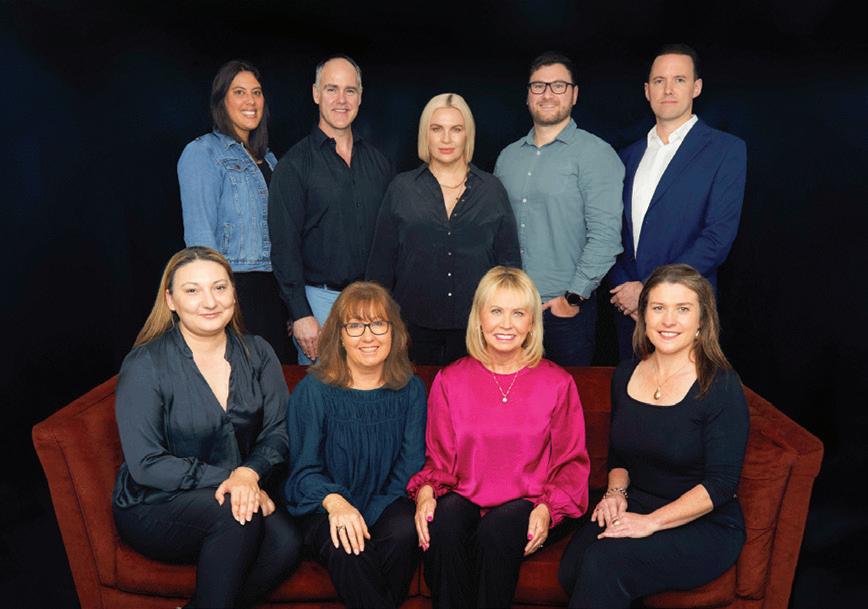





DANPALON’s performance is certified by rigorous testing from worldwide institutions. It offers a new concept in glazing providing outstanding performance and flexibility in design. Use Danpalon for roofing, facades or partitions, internally and externally 021 383 758 | 09 412 7470
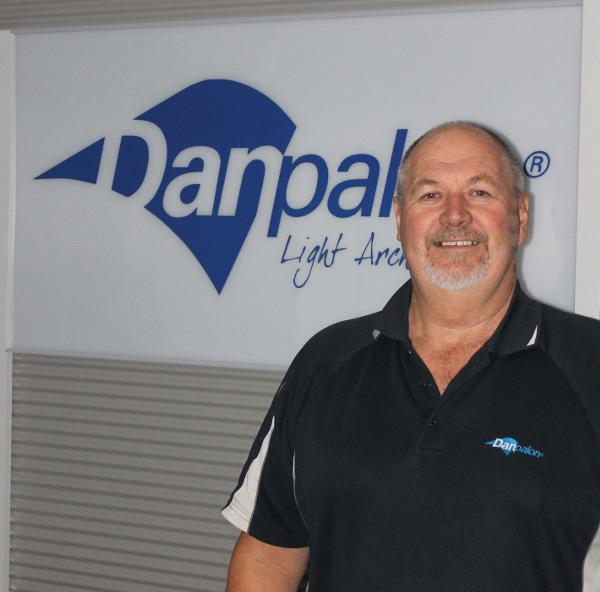
bruce@everlight.co.nz everlight.co.nz
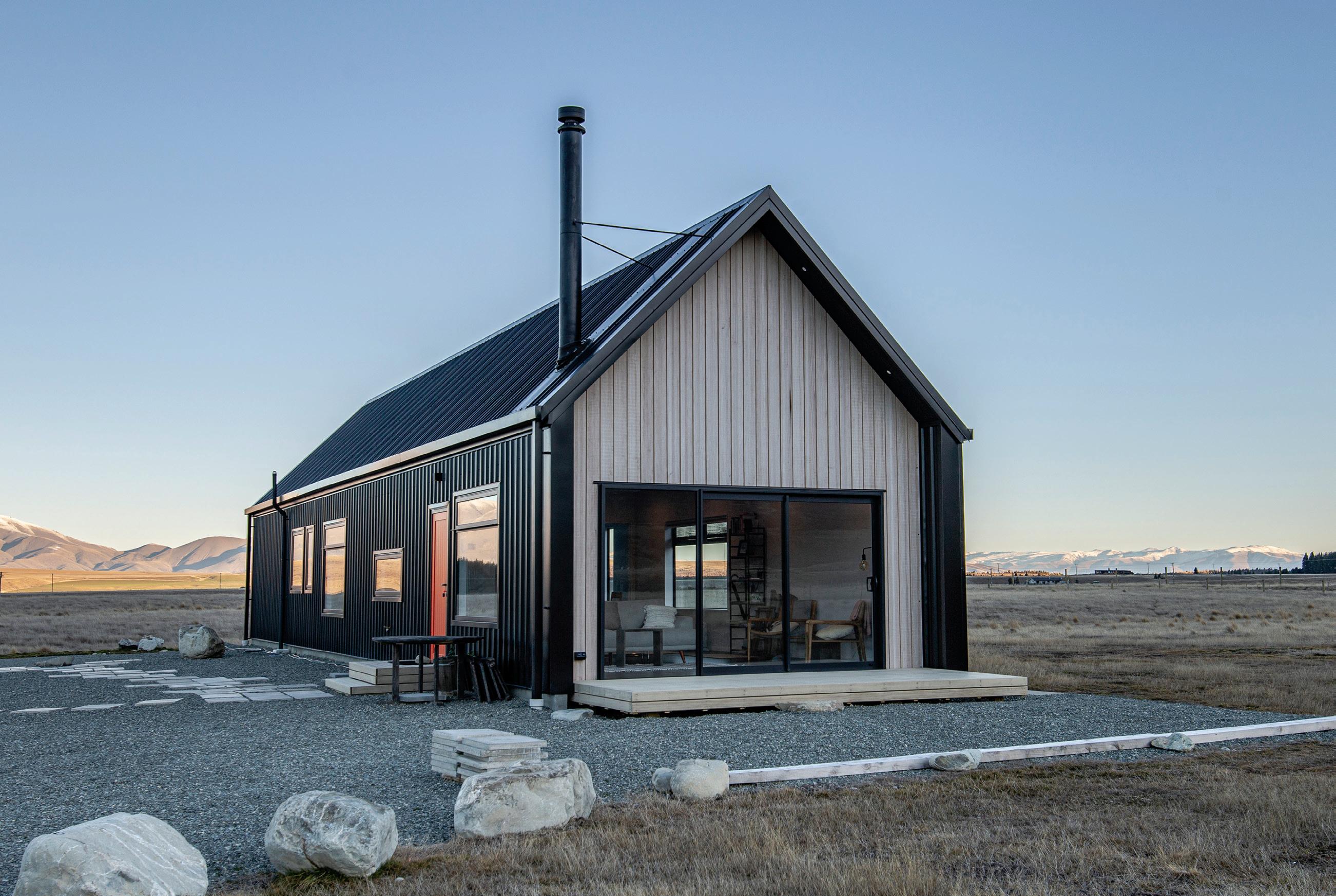




From the Group Editor
Welcome to the latest edition of Plusliving, where we’re focused on living well and ageing boldly.

In this issue, we take a deeper look at how communication is changing — and why younger generations might be hesitant to answer a ringing phone. We also uncover how dreams can reveal emotional patterns and why understanding fatigue is more than just knowing when to rest.
As always, we’re here to ask the questions that matter. From examining the hidden impact of alcohol on older adults, to tackling loneliness in our communities, this issue is packed with insights, inspiration, and practical knowledge.
Whether you're exploring natural health remedies, navigating family relationships, or simply seeking a moment of reflection, I hope these pages resonate with you.



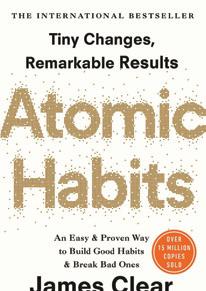

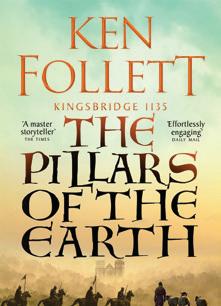
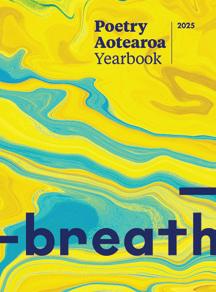
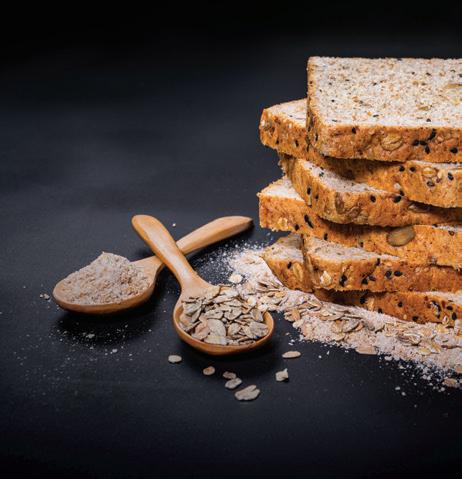


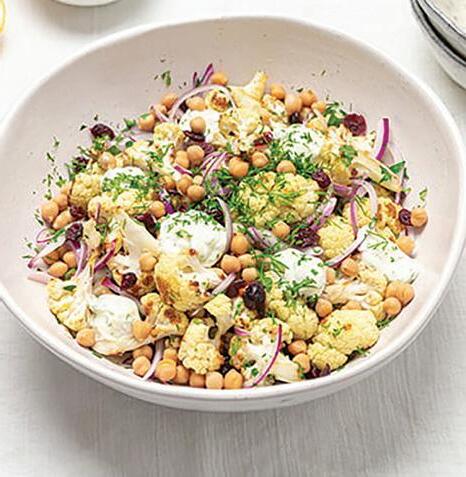

Welcome to Plusliving – the magazine dedicated to living well and ageing gracefully in modern society. Aimed at the 50+ age group, you’ll find articles covering all aspects of contemporary life, including physical health and wellbeing, mental health and acuity, home life, working life and finances, technology, travel, self-improvement and more. Our aim is to provide information anyone can use, on any given day, so you can get more out of life.
Publisher: The Job Agency Ltd 38 Lowe Street, Addington, Christchurch 8011
Managing Director: Gary Collins
GM of Operations: Kylie Palermo
Sales Manager: Angela Elley (03) 961 5184 | sales@markat.co.nz
Art Director: Jarred Shakespeare (03) 961 5088 | jarred@markat.co.nz
Design: Jessica Ann
Product Coordinator Manager: Amber Mundy (03) 961 5075 | amber@markat.co.nz
Accounts: (03) 961 5050 | accounts@markat.co.nz
Disclaimer
This publication is provided on the basis that The Job Agency Ltd is not responsible for the results of any actions taken on the basis of information in these articles, nor for any error or omission from these articles and that the firm is not hereby engaged in rendering advice or services. The Job Agency Ltd expressly disclaim all and any liability and responsibility to any person in respect of anything and of the consequences of anything done, or omitted to be done, by any such a person in reliance, whether wholly or partially upon the whole or any part of the contents of this
2020 by The Job Agency Ltd.
or
without
Lifestyles
By Jamie Quinn

Darby Armchair
Upgrade your living room with this mid-century modern chair. Its sleek silhouette, subtle curves, and tapered wooden legs add a touch of chic sophistication while creating a light and airy feel in your space.
RRP $1099.00 www.targetfurniture.co.nz
Design Republique Sophia Ribbed Faux Fur Throw

Elevate your interior design with the luxurious Sophia Ribbed Faux Fur Throw in chocolate brown. This cosy blanket is the perfect accent piece to add a touch of elegance and warmth to your living room.
RRP $149.90
www.bedbathandbeyond.co.nz

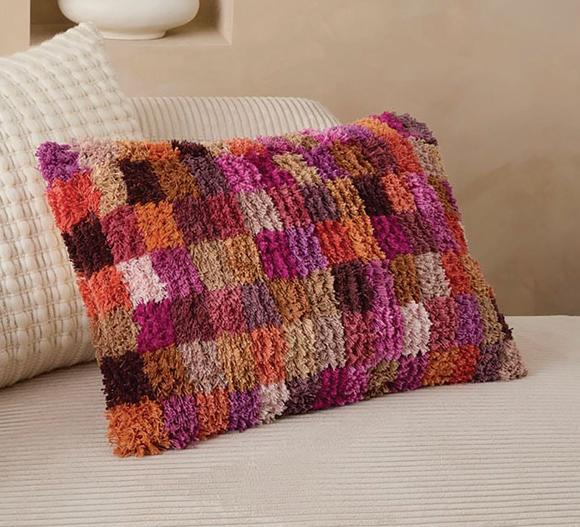

Hadley Spiced Berry Check Cushion
Breathe new life into your living space with the Hadley Check Cushion. This fun accent piece is the perfect pick-me-up for any sofa or armchair in need of a refresh. This beautifully crafted pillow features a classic tufted check pattern and a colour palette that blends seamlessly with most décor.
RRP $99.99 www.adairs.co.nz
DISCLAIMER: Please note prices listed here are recommended retail pricing. Prices are subject to change at the discretion of the seller. The information on this page is for information purposes only. The Job Agency T|A Markat assumes no liability or responsibility for any inaccurate, delayed or incomplete information, nor for any actions taken in reliance thereon.
Tabatha Table Lamp
This sleek and stylish lamp features a contemporary design that will instantly elevate the ambience of any room. Its soft, diffused light creates a warm and inviting atmosphere, perfect for illuminating your favourite reading nook or casting a gentle glow over your living space.
RRP $42.00 www.kmart.co.nz
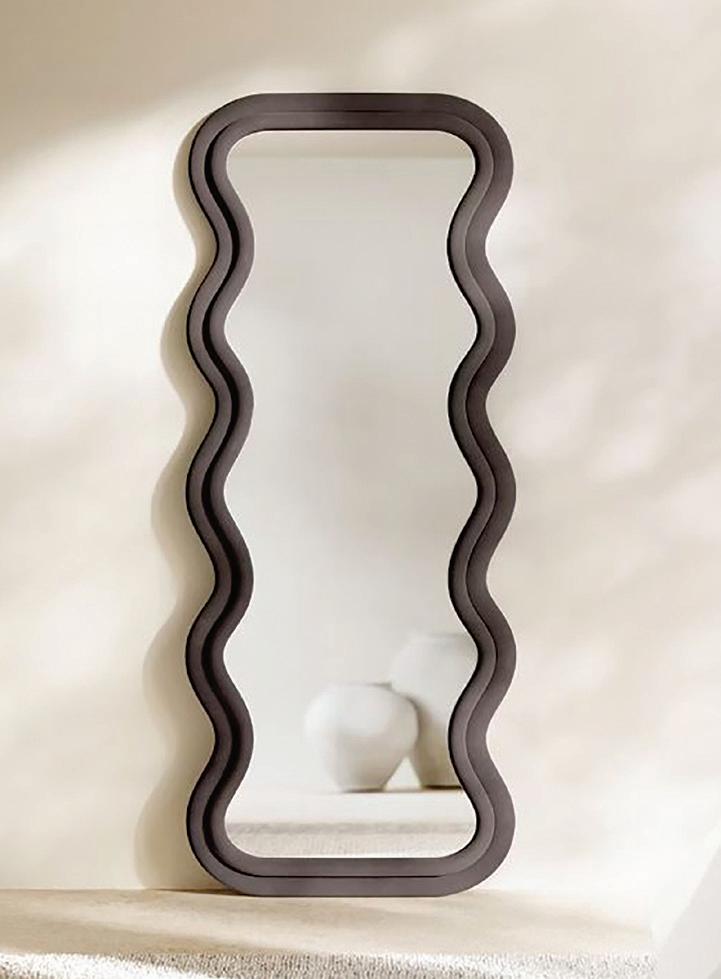
Wavy Floor Mirror
This full-length mirror features a unique, wavy design that adds a quirky personality to any room. The soft curves of the mirror frame contrast beautifully with straight lines, creating a visually interesting look. Featuring a plush velvet frame in rich chocolate brown, this mirror is sure to be a conversation starter!
RRP $199.99 www.onceit.co.nz
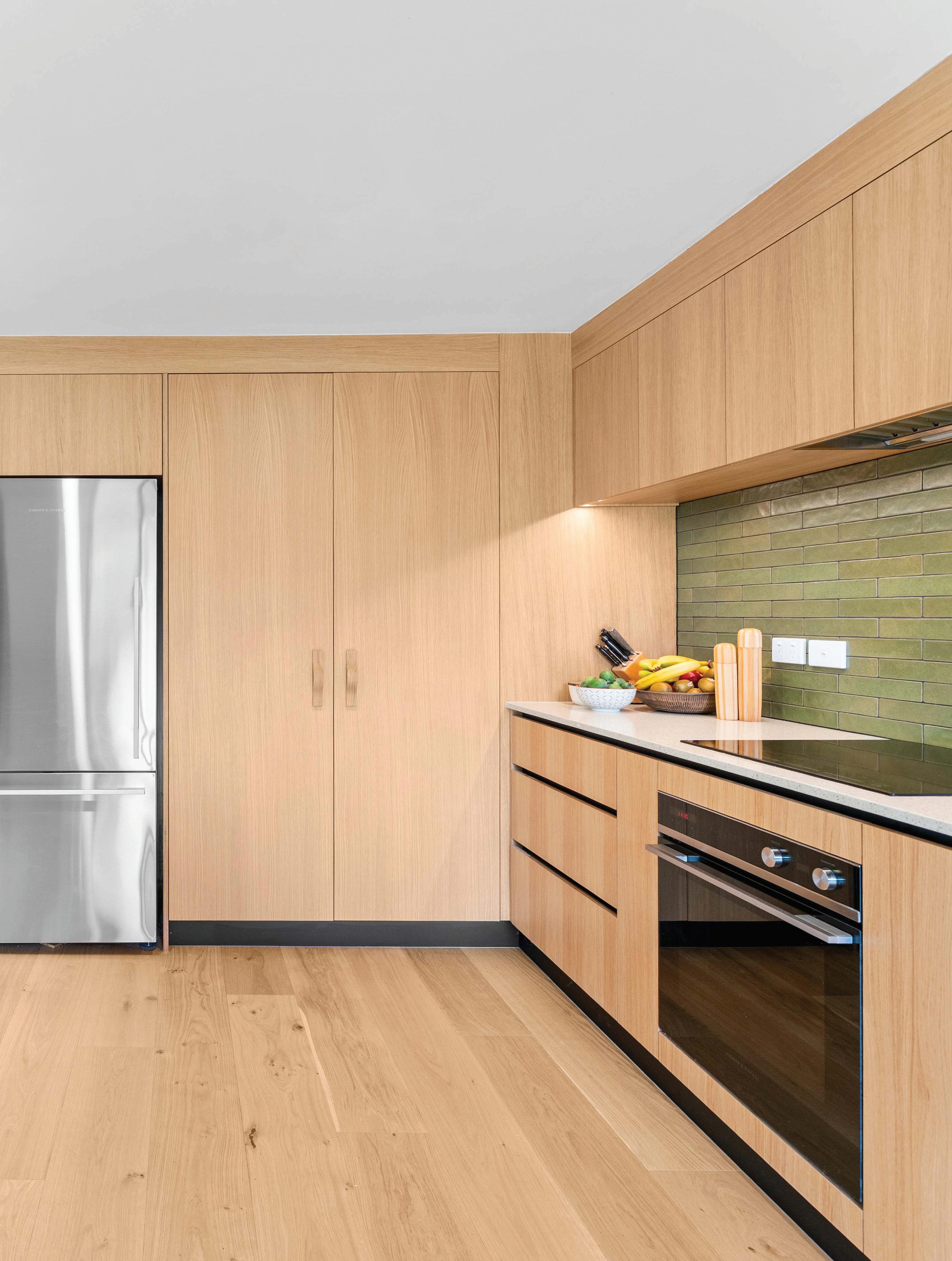
Your journey with us is personalised from start to finish.
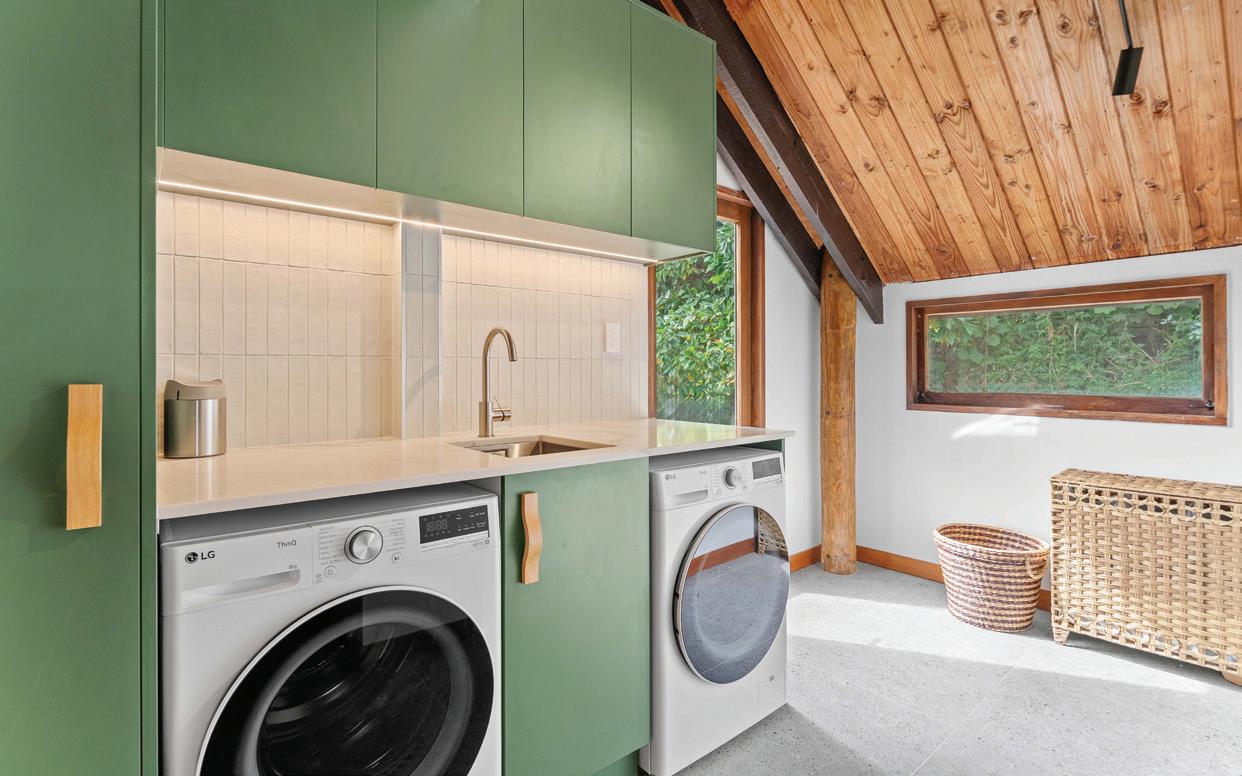


Don’t call me maybe

By Ben O’Connell
Younger generations are communicating via texts and voice notes more than ever before.
They prefer to avoid phone calls, which can cause major anxiety. But what does this change mean for older people, and how can anyone with the same trepidations overcome it? Let’s take a look at a phenomenon so common nowadays that it even has a name: telephobia.
It’s seeing your granddaughter let the phone ring unanswered. It’s someone texting crucial information despite wanting an immediate reply. The ways we get in touch with each other have changed; in turn, so have our preferred means of communication.
Phone anxiety stems from a fear of social interaction. Some of its causes include a fear of judgement, a lack of control over the conversation, and the unease that comes with being unable to read body language. Phone calls can feel like small performances, and with that comes pressure to present a certain version of oneself, especially when the call is unexpected. Even the ringing of the phone can trigger stress.
Text-based digital communication takes away the improvisational aspect of a phone call and comes with fewer unknowns. Young New Zealanders have grown up in an environment dominated by text-based comms, and so the feeling that phone calls are intrusive, outdated, and emotionally taxing is somewhat entrenched in their worldview. How we feel about the first phone calls we make in childhood can have a profound impact on the rest of someone’s life. Generally speaking, earlier generations developed more comfort with calls because they were standard, while digital natives didn’t have to, and now the gap is widening.
This doesn’t mean younger people are incapable of meaningful conversation — it just means their version of comfort looks different. A thoughtful message or carefully worded voice note can carry just as much emotional weight as a spoken sentence. In fact, these formats often allow for greater reflection and honesty.
Rather than reacting on the spot, people can take the time to consider their words. And for many, that makes opening up easier.
There’s also how speaking over the phone opens the door for abuse. Similar to road rage, there’s a humanity gap to phone calls where we still interact yet can get away with a vicious tone or vocabulary that in other contexts wouldn’t fly. Most young people can recall at least one experience of being sworn at and belittled over the phone.
Phone calls are unavoidable in our modern world. These days, you can change power companies entirely online, but to cancel, you must talk to a call centre representative. You can apply for a job via email or an online portal, but you should expect a phone interview a week later. If you’re angry about a service, a phone call to a leader might feel like the best way to get your hot-tempered point across in the moment.
“We can't really generalise it to all and every person. But what we can say is that many Millennials and Gen Zs prefer texting over calling," Auckland University of Technology's Dr Lena Waizenegger told RNZ. As voice notes can be listened to at double speed, and we lead such busy lives where texting is fast and convenient, these generations also feel that voice-to-voice phone calls are time-consuming.
There’s also the inbuilt uncertainty that comes with phone calls, which raises questions such as who is on the other end of the phone, or whether an emergency or major event has occurred. "Because nowadays, because we mainly communicate through text or instant messaging, if someone actually calls, this is mainly a sign of urgency or an emergency.
"What the new etiquette is, is just to text before you call just so that a person is mindful of that someone might be busy at the moment or in a meeting, or busy with the kids, so that they just know, 'Hey, you know, I'm trying to call you. It's urgent. Can you please pick up?' Or, 'Hey, is there any time that's convenient for us to talk on the phone?” she added.
For those who grew up on the phone, leading the wire around the house, spinning the dial and getting kicked off the one line, this communication shift might be confusing, even hurtful. Understanding the reasons behind this shift can bridge some of that disconnect. Younger generations aren’t necessarily being rude or evasive; many are simply overwhelmed by the spontaneity

Phone calls are unavoidable in our modern world. These days, you can change power companies entirely online, but to cancel, you must talk to a call centre representative. You can apply for a job via email or an online portal, but you should expect a phone interview a week later.
If you’re angry about a service, a phone call to a leader might feel like the best way to get your hot-tempered point across in the moment.

and pressure of a call. They are just products of the world they grew up in.
What might come across as indifference could, in fact, be nerves. That silence on the other end of the unanswered phone? It might be hesitation or uncertainty about how to navigate the conversation. When we lead with empathy and recognise that a different upbringing leads to different comfort zones, it becomes easier to meet each other in the middle. Because ultimately, everyone, whether they’re 17 or 70, just wants to feel heard and understood. And finding ways to connect, even across a technological divide, is one of the most human things we can do.
Matters of trust and rest home subsidies
Family Trusts were very much in vogue a few years ago. If you transferred your house to a family trust, you could be exempt from paying for your rest home care.
It is not possible to do this now, as the Government expects the trustees of your family trust to pay for your care in a rest home. Some clients try to get around this by transferring their property to their children. The problem is that for residential care purposes you are limited as to the amount you can gift. The annual limit is $27,000-00 per couple. Any amount gifted in excess of this is classed as deprivation of assets which is added back in for the purpose of calculating your entitlement to the rest home subsidy.
You may find that part of a gift or gifts may have to be added back in for the financial means assessment.
For the year July 2024 to June 2025 the asset limits for a single person in care or a couple with both partners in care (including the value of



their home and car) is $284,436.00. The asset limit for a couple with one partner in care (excluding their home and car) is $155,873.00. Although the general limit for gifting is $27,000-00 for each year, this reduces to $6,000-00 per year in the five year period before you go into the rest home. The problem is that we often have no idea when we are going to be admitted to the rest home, and you may find that part of a gift or gifts may have to be added back in for the financial means assessment. A crystal ball would help. At age 85, only 21% of the population is in a rest home, and the average stay is only 18 months, so the risk of losing all your assets paying for your care is fairly low.

Protecting you, your family and business from the unpredictable turns of life, doing good things for people in challenging times.
“For Lifestyle & Business Protection That Works”
When life becomes unpredictable
• Health and Lifestyle Protection
• Income Protection for an Uninterupted Cash Flow
• Group Health and Lifestyle Protection Plans
• Partnership and Key Person Protection Plans
• Acc Levy Advise
• Kiwi Saver Class Advise
Colin Bogue
ï 022 136 4931
¾ PO Box 372 Hawera 4640
º colin@futurelife4u.co.nz
Ô www.futurelife4u.co.nz

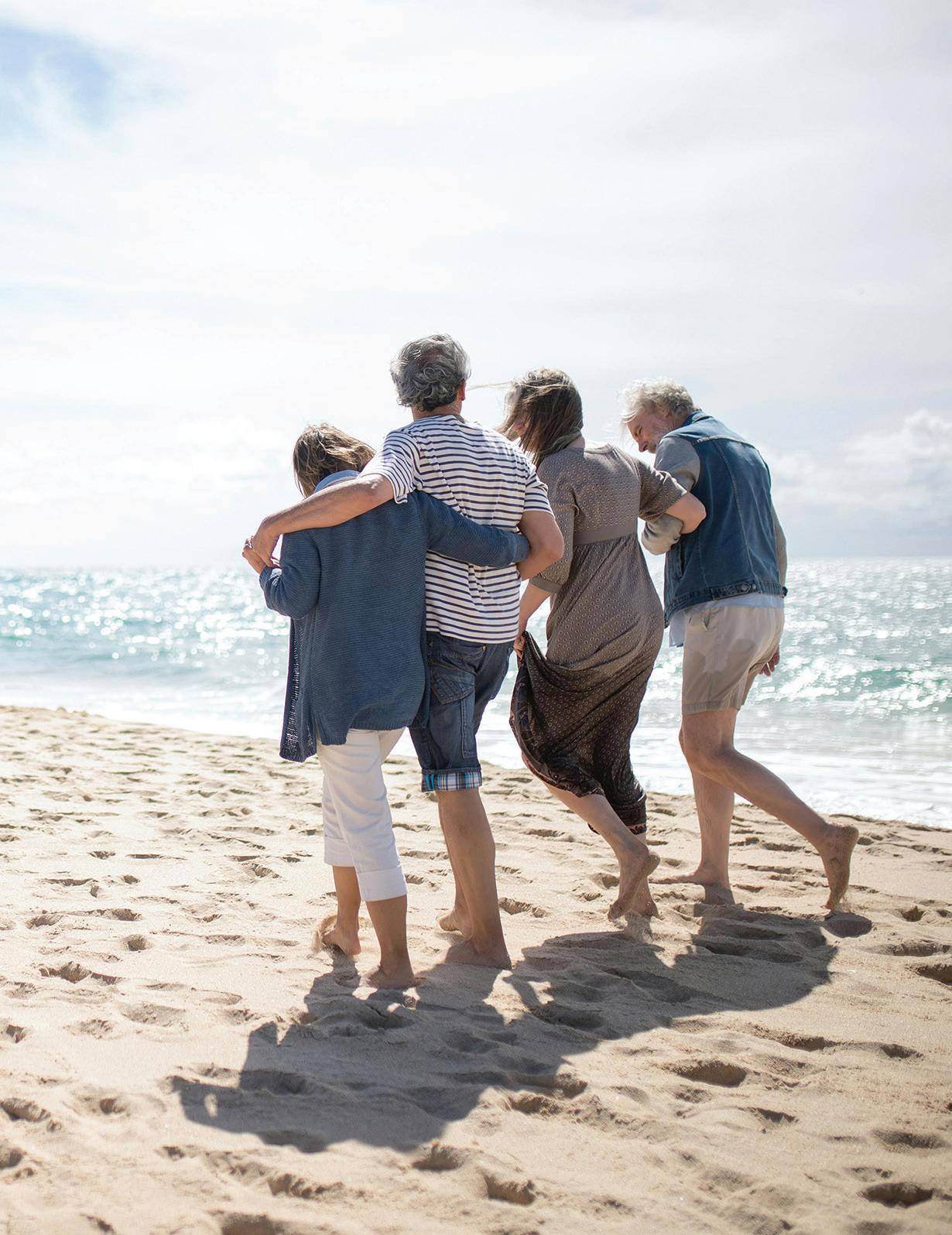
“Doing

WE ARE A GOLD STANDARD SMALL ANIMAL PRACTICE, WITH A REPUTATION FOR GOING ABOVE AND BEYOND.
Vetcare Tauranga is made up of two clinics, Vetcare Bethlehem and Vetcare Cherrywood. We are a gold standard small animal practice with a reputation for going above and beyond. We believe in treating our clients’ animals like they are our own. Our great team of vets offer a range of services including surgery, dentistry, free nurse consults, orthopaedic surgeries and oncology emergency care and more. Kitten & Puppy Care
(07) 576 9555 • bethlehem@vetcareltd.co.nz • 182 Moffat Road, Tauranga (07) 576 9807 • cherrywood@vetcareltd.co.nz • 477 Otumoetai Road, Tauranga

Decoding recurring dreams
By Ben O’Connell
For as long as humans have been sleeping, they have been dreaming. Some say it’s the brain processing our days and experiences.
Some say it’s our brain setting goals, so dreaming about the future. And some say dreams have deep symbolism that is both highly individual and yet somehow universal. Decoding recurring dreams and patterns within them can have a profound impact on one's life.
Difficult emotions and significant life events can cause recurring dreams. Unresolved issues, unmet needs, conflicts, and tensions that, whether we are aware of them or not, can also increase their likelihood. The recurrence of a dream one had long ago can indicate that something in your current life requires you to revisit an old problem and remind yourself of how you handled it and the outcome.
Perhaps the most common recurring dream is that of being chased. It typically signals anxiety, stress, or avoidance. The pursuer in the dream may represent a real-life challenge, a difficult emotion, or an unresolved conflict. The act of running away in the dream can symbolise a desire to escape from something in waking life, whether it’s a responsibility, a relationship, or an internal struggle.
Dreams of falling are almost as common as those of being chased. While terrifying in the moment, these dreams often reflect feelings of insecurity, a loss of control, or a fear of failure. They may occur during times of transition or uncertainty, such as starting a new job, moving to a new city, or facing a major life decision.
Many adults report recurrent dreams of being back in school, often facing an important exam or realising they are unprepared.
These dreams usually surface during periods of self-doubt or when people are grappling with performance anxiety. They may also reflect a lingering sense of not meeting expectations, either your own or those of others.
Dreams about losing teeth are surprisingly common and can be quite unsettling. Psychologists suggest these dreams may be linked to feelings of powerlessness, concerns about appearance, or worries about communication. Some interpretations connect them to stress or even physical sensations, such as teeth grinding at night.
Water in dreams often reflects emotions and the subconscious. Calm water can symbolise peace and clarity, while turbulent or murky water may indicate anxiety or confusion. How you interact with water, whether that is swimming, drowning, or drinking, can reveal your comfort with your feelings or a need for emotional renewal.
Being naked in public is actually another common dream theme, too. This taps into deep-seated fears of exposure, vulnerability, or embarrassment. It often arises when people feel scrutinised or judged in their waking lives, or when they are navigating new social situations where they fear not fitting in.
While often exhilarating, flying dreams can have different meanings depending on the context. They may symbolise a desire for freedom, escape from problems, or a sense of achievement. Sometimes, they reflect a person’s aspiration to rise above challenges or gain a new perspective on life.
Recurring dreams are a bridge between your conscious and unconscious mind. They invite you to explore your inner world, confront your fears, and embrace growth. By listening to these nightly narratives, you can unlock a deeper understanding of yourself and move forward with greater clarity and confidence.
Western Bay Plumbing
Your Local Plumbing Company
Paul spent 21 years training and working in maintenance plumbing in Wellington before relocating to the Bay. We then began a new chapter by launching our plumbing business to serve the Western Bay area around Te Puke.
Our focus is to provide honest, quality workmanship.
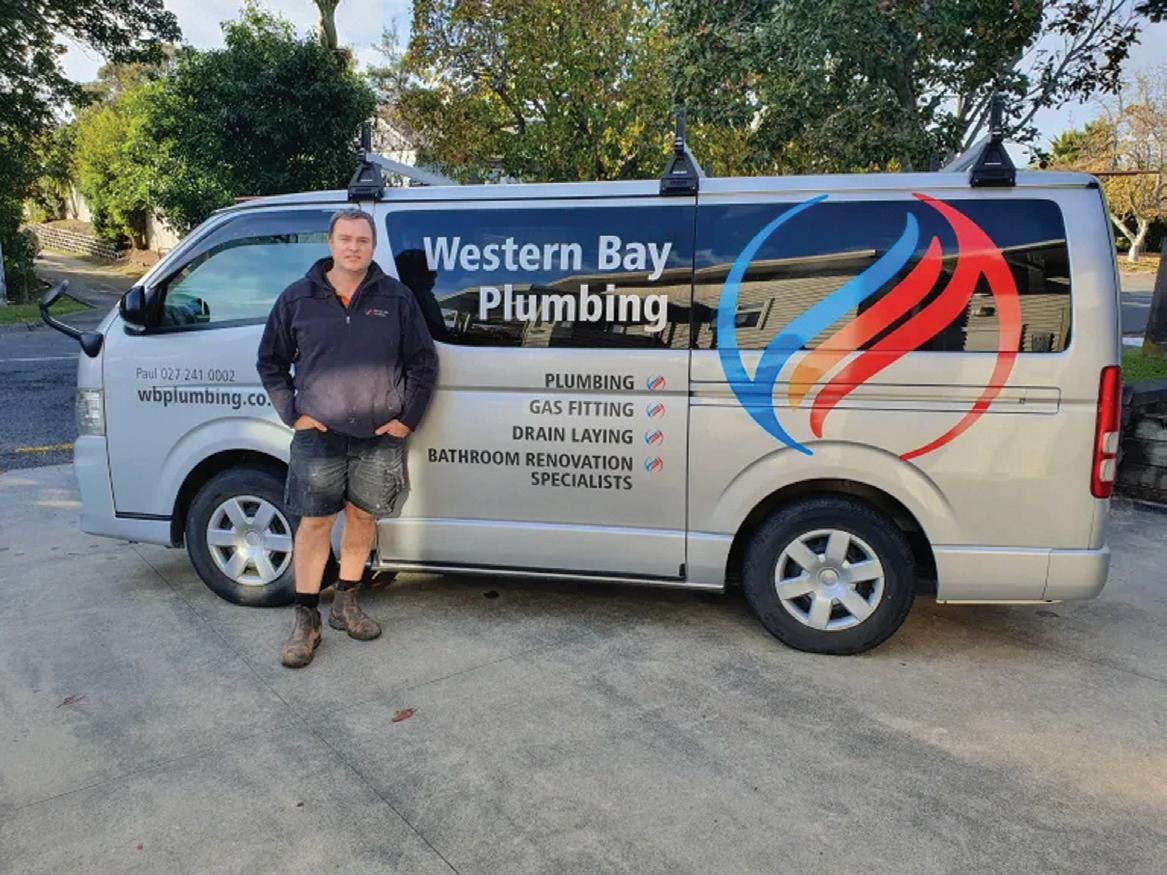
Your trusted local builder in Rotorua
When building or renovating your home, experience, transparency, and trust matter. Based in Rotorua, this family-owned and operated company is led by Duncan himself, a qualified Licensed Building Practitioner (LBP) with more than 15 years of hands-on industry experience.
Whether you are dreaming of a brand-new build, planning a character renovation, or finally ready to take on that high-end extension, Duncan Wills Builders is known for their exceptional craftsmanship with a friendly, honest approach.
The company also has training and experience in understanding and implementing architectural functionality, meaning that they can work with your existing designs or help create a design with you. They also offer a range of pre-approved plans to choose from and have installed lifts in residential homes to assist with the mobility of occupants, while maintaining a high standard of design integrity in the structures.
From the first consultation to the final walk-through, Duncan works directly with clients to make sure everyone is on the same page. It’s this

close collaboration and attention to detail that keeps projects running smoothly and results in homes that clients are proud to live in.
The team specialises in a range of services, including bespoke new homes, extensive renovations, architecturally-designed builds, and even those tricky, technically challenging projects that others might shy away from. As well as this, Duncan Wills Builders also specialise in farming buildings, from cowsheds, effluent management to pole sheds.
If you are looking for a builder who truly values relationships, craftsmanship, and getting the job done right the first time, Duncan Wills Builders is the name to call. Contact the team at Duncan Wills Builders today for your next project!
Call 021 160 8495 or visit www.duncanwillsbuilders.co.nz
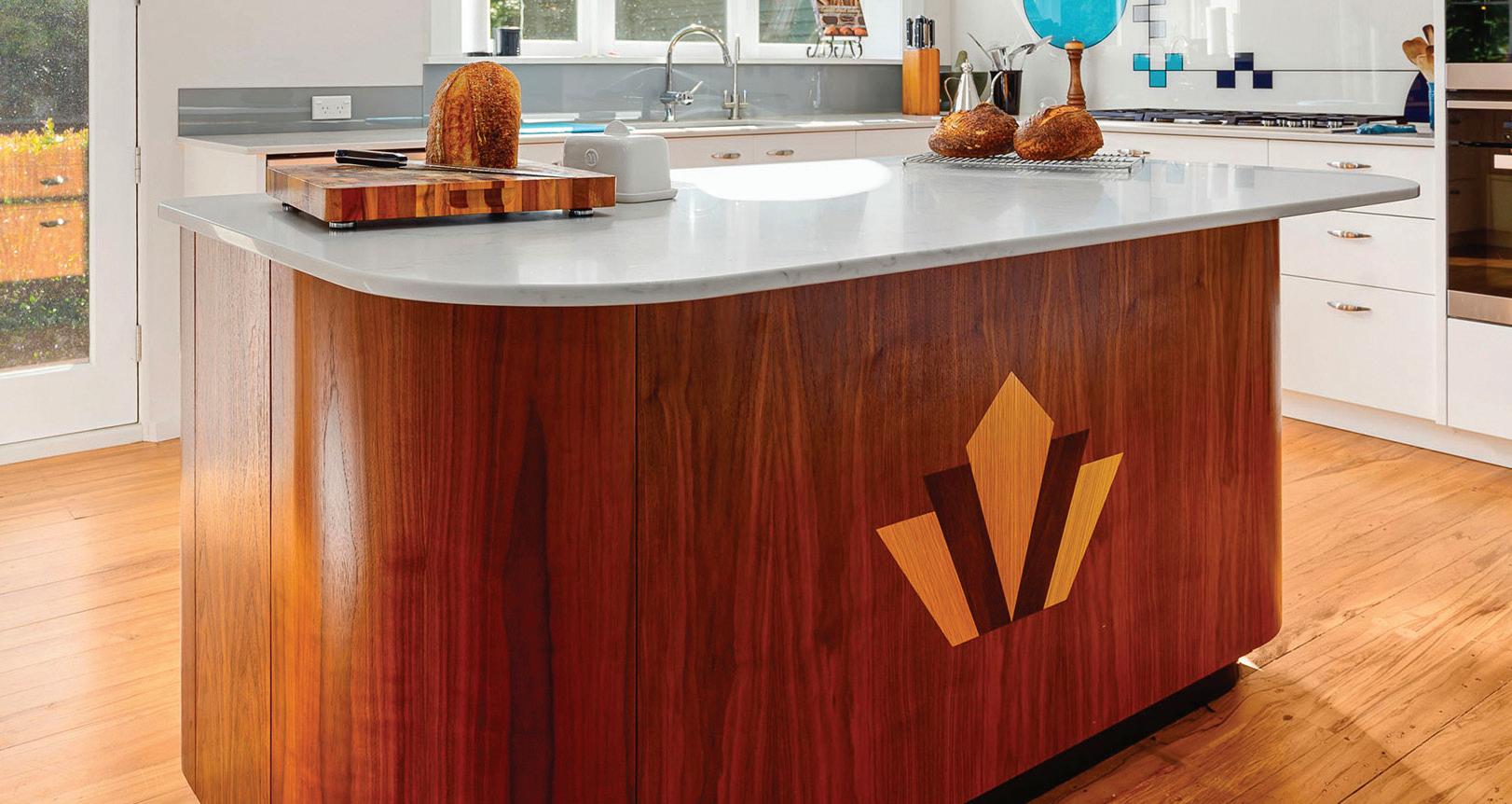




Our experienced electrician provides good quality electrical services at reasonable prices, starting with free quotes.
If you need an electrician in the Whitianga area call us now!

We’re committed to turning up when we say we will, and we’ll discuss options that suit your needs and budget. Whatever your problem –from a misbehaving free-view installation, fixing an electrical fault at the bach to fitting out a new house – we’re pleased to be of service!

All Other Electrical Works as Requested!


Quiet struggles with alcohol and ageing An overlooked issue in New Zealand health
By Paige O’Brien
It’s no secret that New Zealanders enjoy a drink or two. In fact, data from Action Point shows that in 2022/23, approximately four in five New Zealand adults (76.3%) consumed alcohol in the past year.
While binge drinking is most common among young adults, hazardous drinking habits are still common among older age groups, particularly among men.
As we age, the effects of alcohol become more pronounced. Older adults who drink the same amount as younger individuals experience higher blood alcohol concentrations due to changes in body composition. This means it takes longer for the alcohol’s effects to wear off, leaving a more significant impact on health and well-being. For many older adults, alcohol has become intertwined with routine, relaxation, or social connections. However, as people age, it can be harder to recognise when this routine becomes risky.
Alcohol consumption among older adults is common, with studies showing that around 80% of older adults in New Zealand are drinkers. According to the Massey University of Health, Work, and Retirement Longitudinal Study, 83% of older New Zealanders aged 50 and above reported being current drinkers. However, a large portion of them are classified as “hazardous drinkers,” meaning their alcohol intake is detrimental to their health.
The cultural attitude towards alcohol, particularly the belief that older people should be allowed to enjoy themselves in their later years, can contribute to this problem. “. I’ve found that there’s also a phenomenon where people consider that older people shouldn’t be expected or asked to moderate their drinking because ‘they’re eighty, they’ve earned the right.'," says Greta Bond, CEO of Age Concern Canterbury. While there’s some truth to that (older people do have the right!) excessive drinking can lead to a number of health risks, and could be considered to be a detrimental factor to life, rather than just a celebration.”
Alcohol poses several risks to older adults’ health, especially when combined with existing medical conditions and medications. Many older people live with manageable conditions such as high blood pressure, diabetes, and anaemia, but there is the
Life transitions can significantly impact drinking habits. Loneliness, a common feeling in older adults, can be a major factor that drives problem drinking.
Studies show that 10% of people over the age of 65 in New Zealand report feeling lonely, and for those over 80, that number jumps to 50%.
potential that the consumption of alcohol can worsen these. Certain medications, such as blood pressure drugs, painkillers and opioids, can interact dangerously with alcohol. These combinations may amplify the effects of medications, making them toxic, or diminish their effectiveness, leading to further health complications.
“Older people are more likely to be taking multiple prescription medications, so alcohol in combination can really create a minefield,” Bond says. “People may be aware that their medicines come with a 'not to be taken with alcohol' warning, but that’s sadly often ignored. And people may have been ignoring it for a long time, they don’t realise that it’s getting more dangerous as they age.”
As the body ages, its ability to process alcohol diminishes, meaning that what was once a safe amount of alcohol for someone may now have far more harmful effects. Bond adds, “What many people don’t consider is that as the human body ages, it naturally starts to process alcohol less effectively. As a result, the amount of alcohol that a person may have safely enjoyed when they were younger may have significant detrimental effects when they’re older, and people don’t tend to reduce their intake; it stays stable or sometimes increases over time.”
Spotting unhealthy alcohol habits in older adults can be challenging because many older people drink in private, according to Bond. The signs of excessive drinking can easily be mistaken for the natural signs of ageing, such as fatigue or
forgetfulness. However, there are certain red flags that can point to alcohol misuse. “If people withdraw from activities that they’ve previously enjoyed, or family occasions that they previously would have been delighted to attend, that can be a red flag. If they’re falling more often, that can be for a number of other reasons, but it’s worth checking if alcohol is a contributing factor. If they’ve got declining health, this should be checked out by a GP anyway – and a GP should check alcohol habits in relation to many of the kinds of symptoms that might occur, including physical deterioration and memory issues.”
Life transitions can significantly impact drinking habits. Loneliness, a common feeling in older adults, can be a major factor that drives problem drinking. Studies show that 10% of people over the age of 65 in New Zealand report feeling lonely, and for those over 80, that number jumps to 50%. “Loneliness is a real driver for problem drinking, and retirement, bereavement or moving into care can all contribute to increased loneliness, which often exacerbates problem drinking. It’s a massive change. Retirement can be a wonderful time of enrichment and contribution, but often it’s challenging (financially, socially, and physically). This can really influence drinking.”
For older adults who are concerned about their alcohol consumption, there are several support options available. Speaking with a GP can be a first step, as they can provide medical advice and connect individuals with resources. Support groups like AA offer a safe space for older adults to share their experiences and gain support from others who are going through

As the body ages, its ability to process alcohol diminishes, meaning that what was once a safe amount of alcohol for someone may now have far more harmful effects.
similar struggles. In addition to these resources, community organisations such as Age Concern and Citizens Advice Bureau can help provide guidance and connect people with further support services.
The issue of alcohol consumption among older adults remains largely unaddressed in public health education. While there is general awareness of alcohol’s effects on younger populations, specific messaging for older adults is lacking. Bond explains, “I think the messaging needs to be quite different from that aimed at the general health – it needs to recognise and celebrate the mana and dignity of older people, and provide some solutions.”
At the end of the day, older adults have the right to make their own choices, including decisions about alcohol consumption. While it can be difficult for families and friends to approach their loved ones about this sensitive issue, it is important to do so with empathy and understanding. “Have a think about what it would feel like if someone approached you about a habit you’d been enjoying your whole life, and suggested that you might want to cut down or stop. Particularly if it was because they had observed changes in your behaviour or the way you were presenting to the world,” Bond advises. “It’s worth remembering they might not share your views, or your feelings around what is best for them! Don’t give up, but approach the conversation with empathy, respect and consideration that you would like to have directed towards you.”
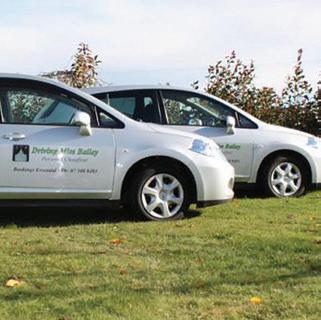




Wake-up call
When a nap just doesn’t cut it
By Jamie Quinn
We all get tired after a long day, a tough workout, or another late night.
Tiredness is your body’s simple way of saying, “I need a break.” There’s usually a clear reason: lack of sleep, physical effort, or stress. Your energy dips, and you might feel sluggish, but a good night’s rest, a huge cup of coffee, or some downtime often does the trick.
Fatigue is a different beast. It’s a lingering, overwhelming, allconsuming exhaustion that doesn’t let up with sleep or relaxation. It can sneak up gradually or hit all at once. Some people describe it as a heavy feeling in their body, while others feel like they’re wading through mud. You might find it hard to concentrate, get through the workday, or even keep up with conversations. And no matter how early you go to bed or how much caffeine you have, it doesn’t ease off.
According to Dr Alex Bartle, Medical Director of the Sleep Well Clinic, the difference between sleepiness and fatigue is often misunderstood. “Basically, sleepiness is your ability to fall asleep in passive situations. So you know, if you're sitting quietly after lunch or lying down after lunch, if you're watching TV, if you're reading, they're all passive situations. Could you go to sleep in that? That's sleepiness,” he explains. “Fatigue is cognitive stuff. Fatigue is related to concentration, memory, decision-making, speed of thinking, motivation, and mood, particularly.”
The tricky part is that tiredness and fatigue often get used interchangeably. But there are important differences. Tiredness usually has an obvious cause and an easy fix: lack of sleep, stress, or overexertion. It comes and goes. Fatigue sticks around, and it can be your body’s way of telling you that something else is going on under the surface.
“So often, they coexist,” says Dr Bartle. “But if you have insomnia, for example, which is where I come in, by definition, you can't sleep.” The key sign? Sleep doesn’t reset you. That’s a big giveaway of fatigue, not just needing to catch some z’s.
If you’re stuck in a cycle of never feeling rested, it might be time to stop chalking it up to a “busy life” and start asking why Feeling fatigued, constantly and without reason, is not normal.
It is important to see a healthcare professional if fatigue:
• Persists for more than two weeks
• Is not improved by sleep or rest
• Interferes with work, social, or personal responsibilities
• Comes with additional symptoms such as weight loss, mood changes, night sweats, or unusual pain
• Affects your ability to drive or concentrate safely
Dr Bartle advises, “If you're getting unusually tired and falling asleep at inconvenient times, let's put it that way. So you know, when you're watching TV, you're not getting through a whole movie without falling asleep. And obviously, the worst-case scenario is if you start feeling sleepy while driving. That's towards the more severe end, and you definitely need to get some help and find out what's going on.”
He adds that even less obvious scenarios should prompt action. “Even, you know, social things. If you're yawning or falling asleep and struggling to stay awake when you're in meetings, for example, or falling asleep halfway through a movie. The fatigue is more intense; I struggle to concentrate, my memory is fading, and I've lost motivation to do things like go for a walk. I just can't be bothered. That's more fatigue.”
Fatigue can be a symptom of a serious health issue or sleep apnoea, to mental health struggles like anxiety or depression. It can even point to chronic conditions such as long COVID or ME/CFS (chronic fatigue syndrome).
A doctor may perform blood tests to check for common causes such as iron deficiency, thyroid function, vitamin levels, and infection markers. In some cases, further investigation into sleep quality, mental health, or chronic conditions may be required. Ignoring it can let serious health issues slide, or badly impact your quality of life.
Feeling tired now and then? That’s just life. But constant exhaustion, no matter how much rest, is a signal you shouldn’t ignore. Fatigue can significantly impact your mood, productivity, and overall wellbeing. It’s easy to brush off tiredness as just part of life, especially when things get busy. But if it starts to feel like your energy is always on empty, don’t just push through. Your body is trying to tell you something, and it’s always worth listening.




Some days need a bit of backup. Maybe it’s a little support in the shower, a reminder for meds, or just a steadier walk to the letterbox.
From rollators and bathroom aids to the new Day Hub reminder clock, Radius Shop has products that make daily life easier, so you can keep doing things your way.

We’re in it for you.
0800 213 313
We’ve got all your medical supplies covered.
At Capes Medical supplies you’ll enjoy great super gold card discounts on our medical supplies!
We’re open to the public. Find us at 122 Newton Street Mount Maunganui Monday - Friday 8am to 4.30pm m 0800 18 19 19
Shop online and get FREE delivery when you spend $150 or more on consumables.
capesmedical.co.nz
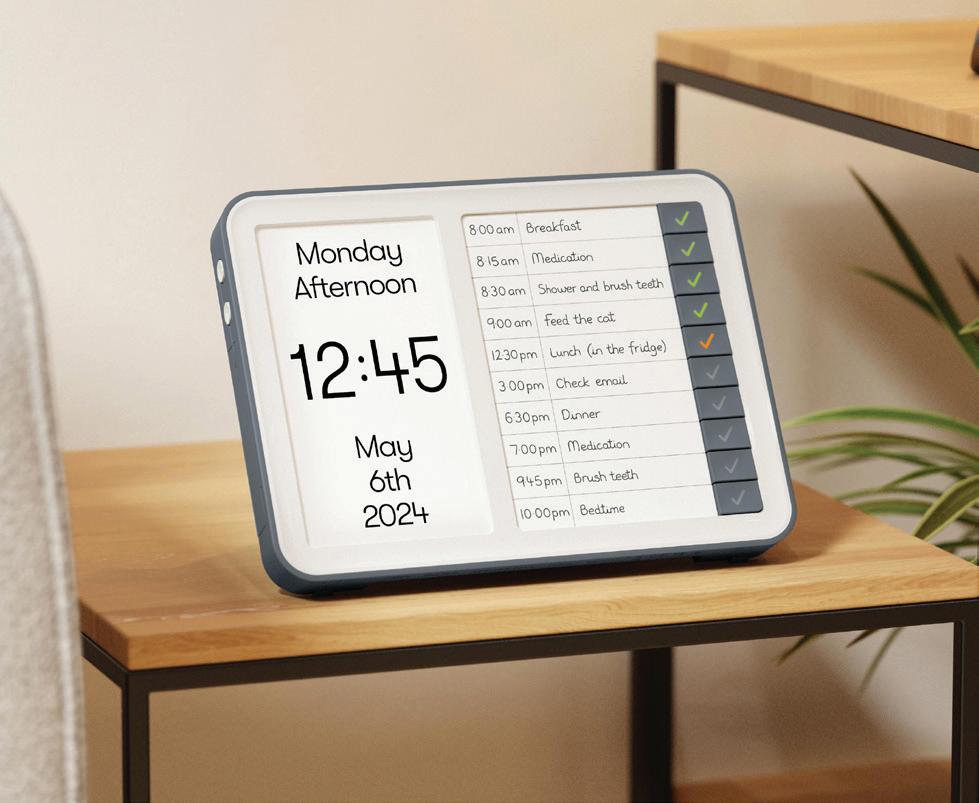
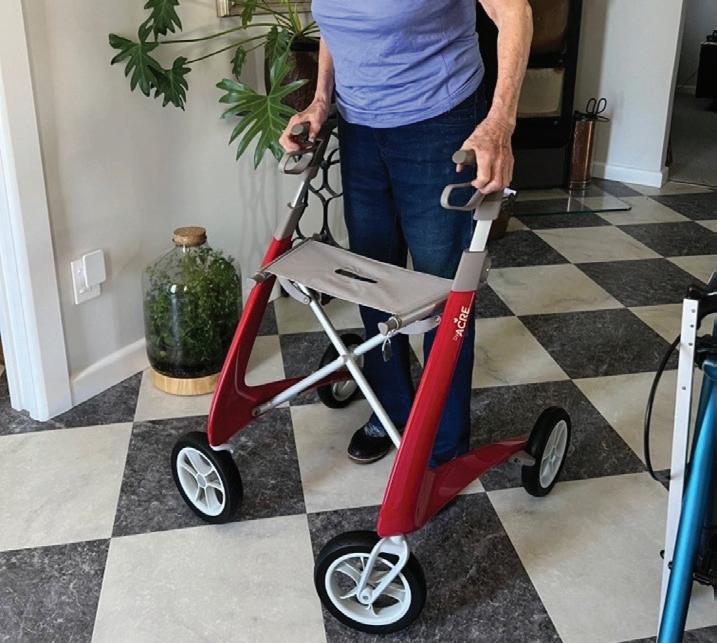
Enduring powers of attorney
Do I need these? Should I change mine?
An “attorney” is someone you choose to make decisions for you, if you are unable to make decisions for yourself.
Enduring Powers of Attorney (“EPAs”) are documents whereby you appoint an attorney to act on your behalf in the event you lose capacity to make decisions for yourself. The documents are completed while you have capacity and they “endure” any loss of capacity you may suffer.
Many lifestyle or retirement villages require you to have EPAs in force whilst you are a resident with them. If you reside in such a village you may request a copy of your EPAs from the village office.
There are two types of attorneys you can appoint:
1. The first is in regard to “Personal Care and Welfare”.
The person you appoint will make decisions such as:
• Where you live;
• What type of medical treatment you receive.
2. The second type is “Property”. The person you appoint will make decisions regarding your finances, property and legal matters. For example:
• They may access your bank accounts and use the funds for your benefit.
• They can sign contracts on your behalf, such as the sale of your home and purchase of a new home, respond or initiate legal proceedings on your behalf.

If you lose capacity to make decisions, the attorney you have appointed will make these decisions for you.
If you wish to change your attorney, you must revoke the existing attorney by formal written notice. To ensure an EPA is always in place, we recommend doing this in conjunction with the appointment of a new attorney.
If you have fallen out with your chosen attorney, or you simply feel that someone else is better suited to the role, we strongly recommend your documents are updated.
Kaimai Law Bethlehem and Omokoroa have been providing detailed and pragmatic advice regarding EPAs for many years. If you wish to revoke, update, or establish EPAs – we would be happy to assist.

Omokoroa

• Trust & Asset Management
• Conveyancing/Property
• Family Law
• Dispute Resolution
• Elder Law
• Estate Administration
• Resealing of Probates
• Commercial Law-Business Law


A dr p of relief
By Jamie Quinn
If you’ve been hearing more about CBD oil lately, you’re not alone.
Derived from the cannabis plant, cannabidiol (CBD) is a nonpsychoactive compound, which means it won’t get you high like THC does. Instead, it offers a range of potential therapeutic benefits that are drawing attention from people of all ages, especially those looking for gentler, more natural support for common health issues.
Pain is one of the main reasons people turn to CBD. As we age, aches and pains become more frequent, arthritis, joint stiffness, muscle soreness, and chronic pain can really take a toll on day-to-day life. CBD oil is believed to interact with the body’s endocannabinoid system, which plays a role in regulating pain and inflammation. Research suggests that CBD may help to ease inflammation and reduce the intensity of pain without the side effects associated with long-term use of over-the-counter or prescription painkillers. Many users report that CBD oil helps them move more comfortably, especially when paired with gentle exercise and stretching.
Anxiety is another area where CBD has shown promise. Whether it’s general anxiety, social discomfort, or that nagging sense of unease that can accompany major life transitions or aging, CBD may offer some relief. It’s thought to influence serotonin receptors in the brain, the same receptors that play a role in mood regulation. While it’s not a replacement for professional mental health support, some people find that taking CBD oil helps them feel calmer throughout the day.
Sleep is often elusive for older adults. Whether it’s due to pain, anxiety, or just the natural shifts in sleep patterns that occur with

age, poor sleep can snowball into all sorts of other health issues. Some people find that CBD helps them unwind in the evening, fall asleep faster, and stay asleep longer. It may not act like a traditional sedative, but by easing the underlying issues like pain or stress, it could help promote a more restful night.
Beyond these common concerns, CBD oil is also being explored for its potential in supporting neurological health. There’s some early evidence to suggest it might play a role in protecting brain function and even supporting people living with conditions like Parkinson’s or Alzheimer’s disease. While the research is still in its early days and much more is needed before any firm claims can be made, the results so far are encouraging.
In New Zealand, CBD oil is available by prescription and must be sourced through a medical professional. This ensures products meet strict quality and safety standards, which is essential given that not all CBD products on the international market are created equal. Having access to medically approved, pharmacistdispensed options can give users confidence in both dosage and purity. Clinics such as the Cannabis Clinic are leading the way in providing professional guidance and tailored CBD treatment plans for Kiwis seeking relief from pain, anxiety, and other ongoing health concerns.
It's worth pointing out that CBD isn’t a cure-all, and it may not work the same way for everyone. Some people experience noticeable benefits quickly, while others might need time to find the right dosage or delivery method. And, as with any supplement, it’s important to talk to your doctor before starting, especially if you’re taking medications that could interact with CBD.
That said, for many people, CBD oil is a promising new chapter in personal health. Whether you’re looking for a more natural way to manage discomfort, reduce anxiety, or simply sleep more soundly, it may be worth exploring how CBD oil could support your wellbeing.
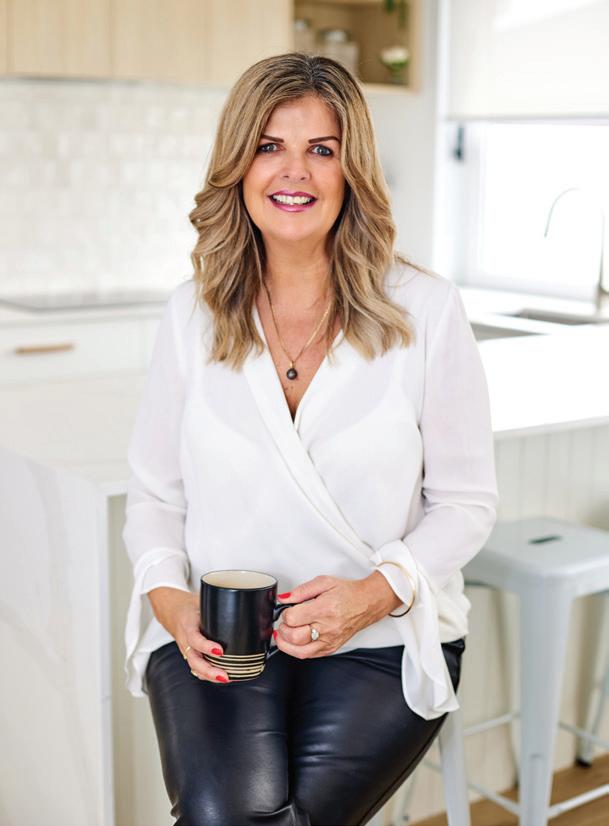
Hi, I’m Sara, owner of Papamoa Property Management. I'm a long-time business owner, homeowner, landlord, like to travel and lover of fresh ocean air!
The main reasons people ask me to manage their properties for them is because they no longer want to be bothered with all the time and energy involved in having rental properties. I don’t blame them... lucky I love property and people!
Get in touch with me today, we also manage properties in the surrounding areas like Mount Maunganui and Te Puke. Services offered include:

• Free Rental Appraisals
• Full Suite of Property Management Services
• Competitive Commission Rates
• Long Term Rental Management
• Methamphetamine Testing
• Building Reports & Qualified Builders
• Healthy Homes Assessments
027 330 1376 sara@papamoaproperty.co.nz Mon. to Fri. 8.30am - 5.00pm www.papamoaproperty.co.nz E Q

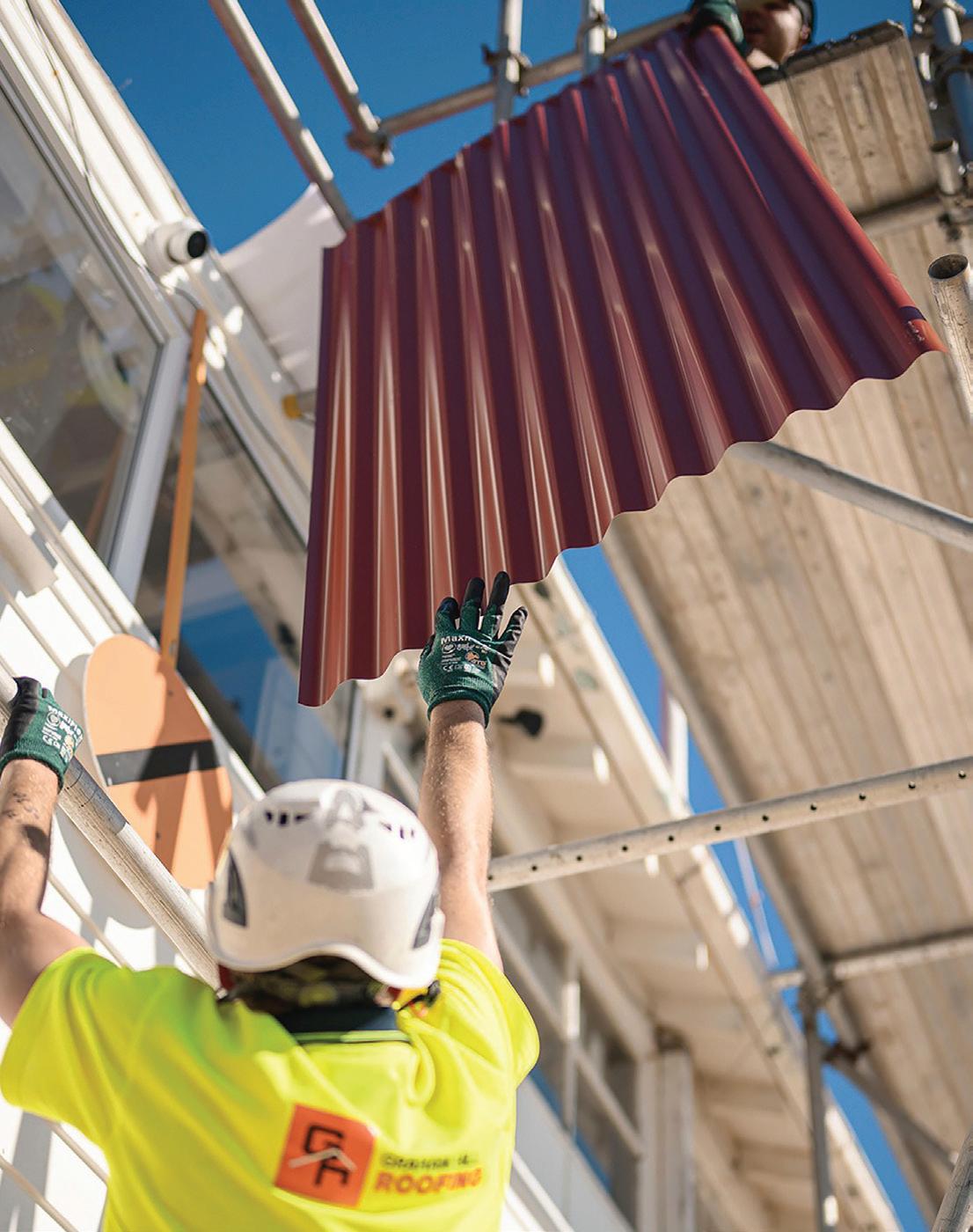
the family home, protecting a coastal retreat, or cladding a highperformance commercial building, ColorCote provides the strength, resilience, and vibrant finish to meet the needs of today and tomorrow. As they step into this exciting new chapter, ColorCote encourages those interested to experience steel, made better.
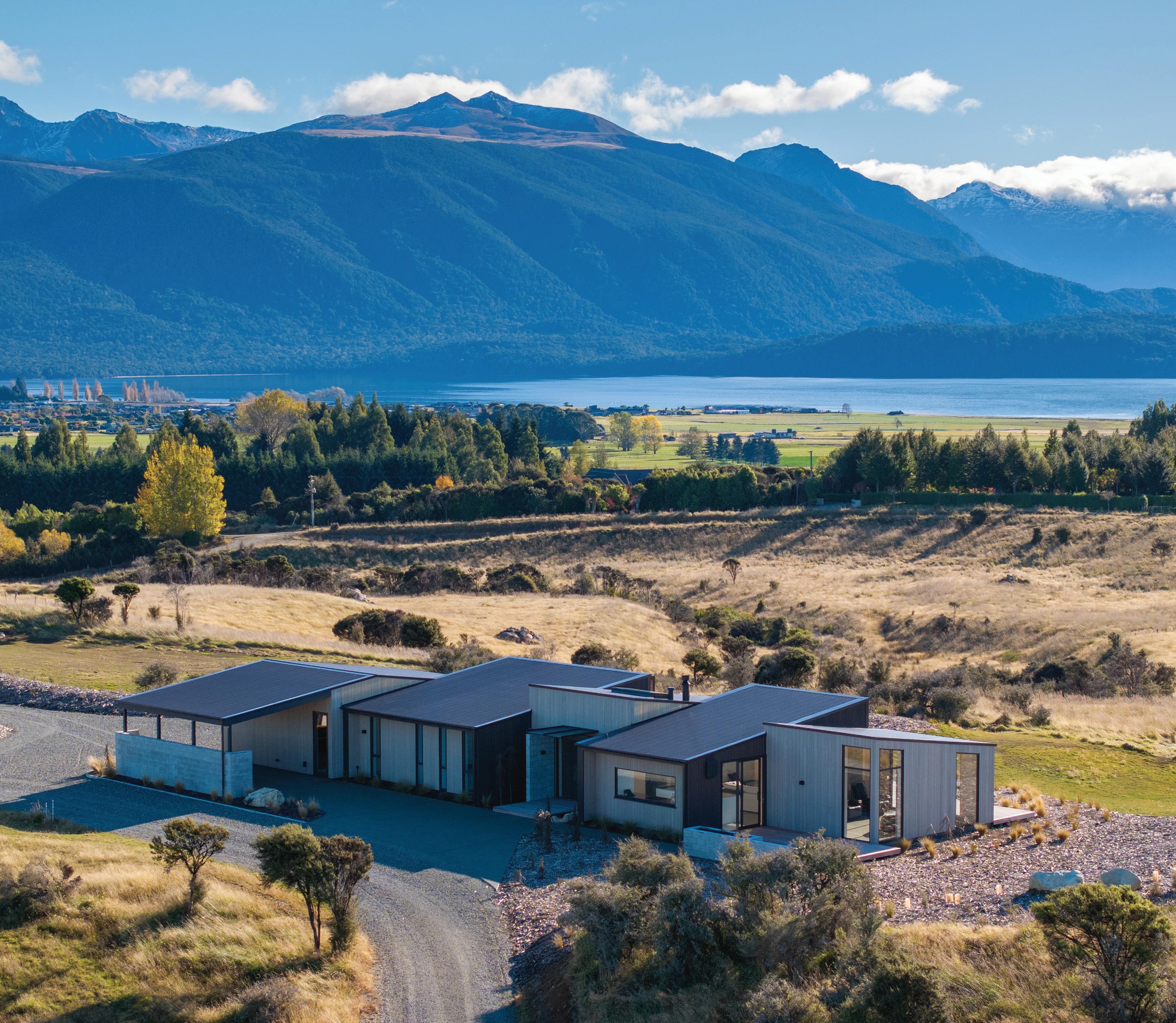

There’s no such thing as coloured steel. It’s all colour coated. That’s what makes it better.

By Jonathon Taylor
Going it aloneLoneliness among older New Zealanders reaches crisis levels
A recent study has revealed that loneliness and social isolation among older New Zealanders has reached epidemic proportions, prompting calls for urgent government intervention.
Health advocates are urging the establishment of a dedicated Minister for Loneliness to coordinate national efforts to address this growing health and social crisis, mirroring successful models implemented in countries such as the United Kingdom and Japan.
The Breaking Barriers report, commissioned by Age Concern Auckland, surveyed older adults across Auckland and the Bay of Plenty to better understand the root causes and consequences of social disconnection among people aged 65 and older.
The findings paint a concerning picture: 59% of respondents reported recent feelings of loneliness or social isolation, with nearly one-third (30%) stating they experienced these feelings frequently or constantly.
According to the study’s authors, loneliness among older people is not simply an emotional issue — it is a public health concern. The research reveals that social isolation is closely tied to a range of negative health outcomes, comparable in severity to smoking, alcoholism, and obesity. Kevin Lamb, Chief Executive of Age Concern Auckland, says the impact of chronic loneliness is farreaching and damaging.
“The level of loneliness and social isolation among older people across the country is severe and has a significant detrimental impact on the lives of many vulnerable New Zealanders,” Lamb says. “This impact is of a similar negative level as smoking, alcoholism, and obesity — not only on individuals but also on our communities and health system.”
The report identifies a complex web of contributing factors. Financial insecurity plays a key role, particularly for those coping with the rising cost of living on fixed or limited retirement incomes. Health-related challenges also contribute significantly.
Long wait times for elective procedures, the rising cost of private health insurance, and the stress of navigating health services all impact older people’s ability to remain socially engaged.
Housing issues also emerged as a major driver of isolation. Many older New Zealanders, particularly those living in social housing, face unsuitable or substandard living conditions.
The study found that 70% of social housing residents reported loneliness, the highest rate among all accommodation types. Limited mobility, inadequate accessibility, and poor housing quality frequently leave older adults feeling trapped in environments ill-suited to their changing needs.
Globalisation and shifting family structures have further compounded the issue. The study notes that many older adults, especially in Auckland, have become geographically and emotionally isolated from loved ones due to adult children relocating overseas.
Alarmingly, 44% of Auckland’s older population are migrants who moved to New Zealand to be near family, only to experience renewed isolation as their children pursue opportunities elsewhere.
Technology, often proposed as a solution to loneliness, may not offer the protection it promises. The study found that 75% of older adults who use social media still experience loneliness.
In fact, those who rated themselves as “very proficient” with smartphones were more likely to feel isolated than those without access. Researchers suggest that digital interaction may lack the emotional nourishment of face-to-face connection and may even amplify feelings of exclusion.
Age Concern Auckland is now calling for the creation of a Ministerial Lead for Loneliness in New Zealand. This role would coordinate national policy, support services, and awareness initiatives aimed at reducing social isolation.
“This is a hidden epidemic, and it requires a visible, co-ordinated response,” Kevin says.
“A Minister for Loneliness would be charged with shaping policies, funding mental health services tailored to older adults, and working across government and community sectors to develop inclusive, age-friendly environments.”
International examples support this approach. In the UK and Japan, dedicated loneliness ministries have helped implement nationwide strategies, raise public awareness, and support at-risk populations.
A similar role in New Zealand could oversee targeted initiatives for rural communities, Māori elders, and migrant populations — groups who, according to the report, are at heightened risk of isolation.
The report also calls for increased funding for mental health support tailored to older adults, expansion of community-based initiatives such as social clubs and volunteer programmes, and stronger anti-ageism campaigns to combat negative stereotypes and promote intergenerational connection.
In rural areas, the challenge is even greater.
Over one-third (34%) of Māori kaumatua live in rural regions, compared to just 20% of the general rural population. With fewer services and a higher older-age dependency ratio in these areas (35 per 100 compared to 23 per 100 in urban settings), Māori elders face serious disadvantages in accessing support.
The Breaking Barriers report serves as a wake-up call to government, health providers, and communities alike.
With an ageing population and widening social gaps, the time for a coordinated, compassionate response is now. Ensuring that older New Zealanders feel valued, connected, and supported is not only a moral imperative — it is essential to the health and wellbeing of our society.
See also: More Kiwis living alone, p56

Alarmingly, 44% of Auckland’s older population are migrants who moved to New Zealand to be near family, only to experience renewed isolation as their children pursue opportunities elsewhere.
A safe place for women and children
Tauranga Women’s Refuge is a lifeline for women and children experiencing family violence in the Bay of Plenty region. With a 24/7 crisis helpline and a team of dedicated professionals, they provide confidential, compassionate support to those in need, whenever they need it.
At the heart of what they do is the belief that everyone deserves to live free from fear. Whether you are experiencing emotional abuse, physical violence, or coercive control, Tauranga Women’s Refuge offers a safe space to begin your journey toward healing. Their secure refuge accommodation gives women and children the opportunity to escape dangerous situations and rebuild their lives.
Tauranga Women’s Refuge also offers ongoing support, advocacy, and guidance, helping women navigate their rights and access services like legal aid, counselling, housing, Work and Income, and Family Court processes. Their team walks alongside each woman, creating tailored safety plans and offering practical tools to reclaim independence and confidence.

Children are also supported through age-appropriate programmes designed to help them process their experiences and build resilience in a nurturing environment. The refuge also runs community education programmes to raise awareness about family violence and empower women with knowledge, confidence, and strategies for living free from abuse.
As a not-for-profit organisation, Tauranga Women’s Refuge relies on the support of its community to continue its work. Donations, sponsorships, and volunteering have a direct impact on the lives of the women and children seeking safety.
If you or someone you know needs help, call 0800 867 338 or visit www.taurangawomensrefuge.co.nz because everyone deserves to feel safe, supported, and hopeful about the future.


Gluten intolerance vs coeliac disease Understanding the difference
It’s not uncommon to hear the terms "gluten intolerance" and "coeliac disease" used interchangeably.
However, they are distinct conditions with different causes, implications, and treatments. For older people, understanding the nuances can be vital to maintaining a healthy, symptom-free life.
Gluten intolerance, also known as non-coeliac gluten sensitivity, is a condition where people experience a variety of symptoms when they consume gluten. These can include bloating, stomach cramps, diarrhoea, tiredness, and even irritability or brain fog. However, gluten intolerance doesn’t result in any damage to the small intestine or trigger the autoimmune reaction seen in coeliac disease.
Unlike gluten intolerance, coeliac disease is a serious autoimmune condition in which the immune system reacts abnormally to gluten, damaging the lining of the small intestine. This damage interferes with the absorption of nutrients and can lead to a wide range of health problems, including vitamin deficiencies, bone thinning, anaemia, fatigue, infertility, and even certain types of cancer if left untreated.
Consultant Gastroenterologist at the Royal Melbourne Hospital, Dr Jason Tye-Din, said in an article for the Coeliac New Zealand website that the terminology around these conditions can be confusing.
“The terms ‘gluten intolerance’, ‘wheat intolerance’ and ‘gluten sensitivity’ can be quite confusing,” he said. “Some doctors use the term gluten sensitivity to describe people with medical symptoms… but the person does not fit all the criteria to make a definite diagnosis of coeliac disease.
“In coeliac disease the sufferer’s immune system reacts abnormally to gluten,” Dr Tye-Din explains, “causing small bowel inflammation and damage and a variety of problems such as poor nutrient absorption, vitamin deficiencies… and thinning of the bones.”

He stresses that timely diagnosis and treatment with a strict, lifelong gluten-free diet can prevent or even reverse many of these complications, and that the distinction between these two conditions is vital.
While gluten intolerance may not require lifelong strict dietary changes, coeliac disease does. In people with coeliac disease, even tiny amounts of gluten can cause harm, meaning that cross-contamination and food labelling become important aspects of daily life.
To determine whether someone has coeliac disease, doctors typically begin with a simple blood test known as coeliac serology. If the results suggest coeliac disease, a biopsy of the small intestine is usually carried out to confirm the diagnosis. Only after coeliac disease is definitively ruled out should gluten intolerance be considered. At that point, a dietitian-guided gluten-free trial may help determine whether symptoms improve.
This is not a rare issue in New Zealand. It’s estimated that around one to 1.2% of the population, roughly 60,000 to 70,000 people, have coeliac disease. Alarmingly, about 60 to 80% of those cases remain undiagnosed. This means tens of thousands of New Zealanders may be unknowingly living with a condition that can affect nearly every part of their body.
For those diagnosed with coeliac disease, the only effective treatment is a lifelong gluten-free diet. This allows the intestine to heal, symptoms to resolve, and the risk of long-term complications to diminish.
However, gluten-free living isn't always easy or affordable. A 2023 New Zealand survey found that more than half of people with coeliac disease spend over $50 per week on gluten-free foods. Only a small number receive any subsidised help through prescriptions, despite rising food costs.
For people who are simply gluten intolerant, the story is different. These individuals may benefit from reducing
gluten in their diets, but they are not at risk of the long-term health consequences associated with coeliac disease.
And because there’s no underlying intestinal damage, the diet can be more flexible. In some cases, the discomfort might actually be due to other factors such as irritable bowel syndrome, FODMAP sensitivity, or even stress, rather than gluten itself.
It’s essential to remember that removing gluten from your diet without medical guidance can lead to unintended consequences, such as missing out on fibre or essential nutrients like B vitamins. That’s why experts advise testing and a proper diagnosis before making drastic dietary changes.
Dr Tye-Din underscores this point, saying in the article, “Coeliac disease has very clear diagnostic criteria. In contrast, gluten
The terms ‘gluten intolerance’, ‘wheat intolerance’ and ‘gluten sensitivity’ can be quite confusing. Some doctors use the term gluten sensitivity to describe people with medical symptoms… but the person does not fit all the criteria to make a definite diagnosis of coeliac disease.
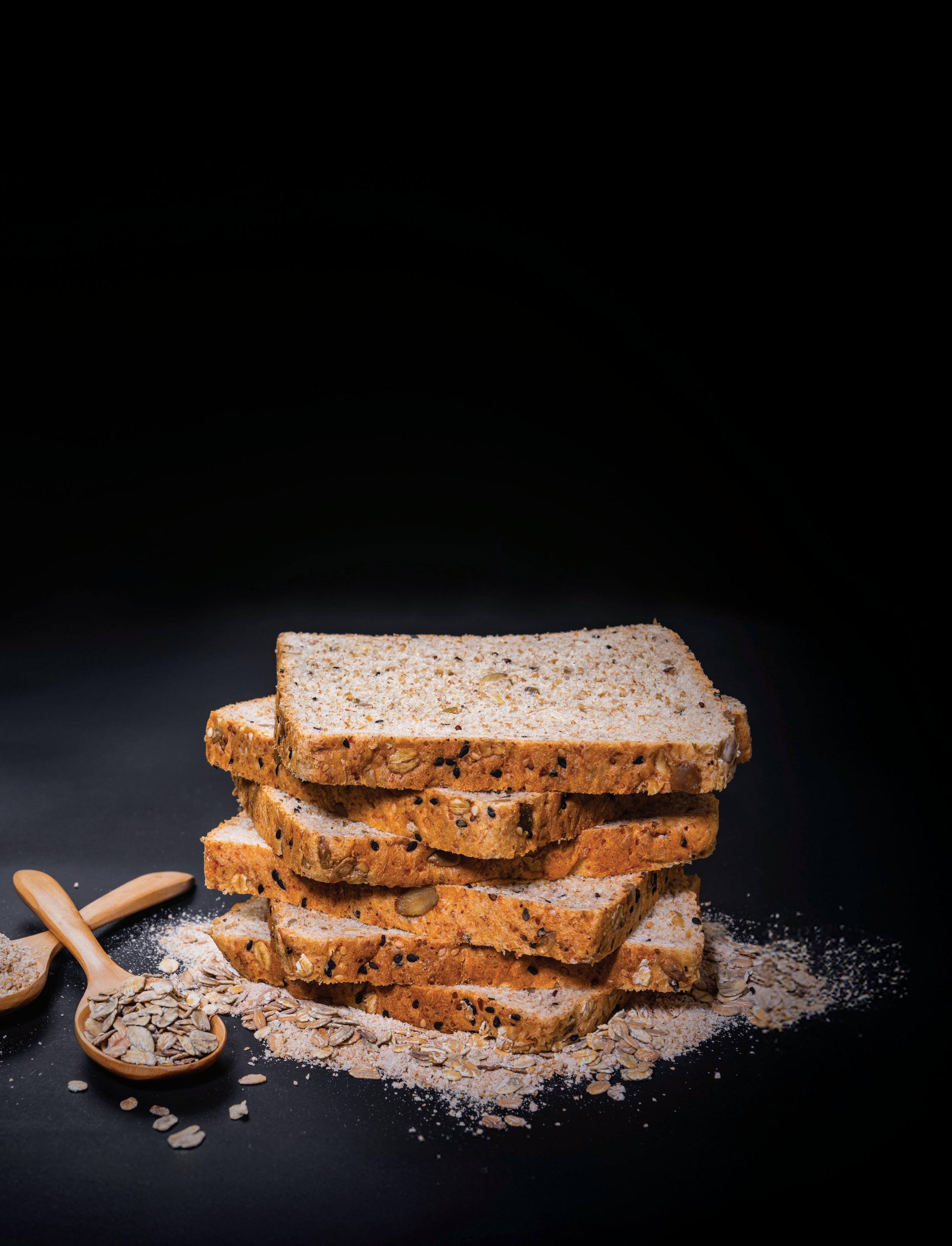
intolerance is associated with unpleasant symptoms … [but] there is minimal evidence that a gluten-free diet is beneficial to maintain long-term health in this setting.”
So, what should older New Zealanders do if they suspect gluten may be affecting their health?
First, see your GP and ask for the coeliac blood test before removing gluten from your diet. If the test is positive, your doctor will likely refer you for further testing. If it’s negative, other causes can be explored. In both cases, working with a trained dietitian can help you manage symptoms effectively and safely.
As awareness around gluten-related conditions grows, so too does the importance of proper diagnosis.
By understanding the difference between gluten intolerance and coeliac disease, older Kiwis can take control of their digestive health, armed with facts, not fads.
See also: Delicious gluten-free recipes, p38
Confidence and independence
Rose lived an active life in a large property in West Auckland with animals and a sizable garden. It was after shoulder replacement surgery that her life changed.
With limited strength and unable to lift her arms above her shoulders, she found many of the household tasks she had once taken for granted were no longer possible, including vacuuming, laundry and bedmaking. “It was while I was in hospital after my surgery that my occupational therapist suggested I have caregivers help me with day-to-day tasks that I was no longer able to do. It never occurred to me that there would be a time when I struggled with daily chores but my therapist was right ”
That was ten years ago, now in a smaller property, Rose has had Visionwest Home Healthcare supporting her for over a decade. “My doctor arranged it and one day a lovely lady from Visionwest turned up at my door. I’d been assessed as needing help with chores that needed shoulder strength or required me to reach up high. That included my shopping. I now have a lovely caregiver who takes me shopping to help me reach things in the store and put things away properly When it comes to making my meals, I plan in advance and my Suppor t Worker gets down the items I’m going to need.”
“With Visionwest, I’ve still got my independence, which is great. I love my own home.”
It takes a special person to be a Support Worker and Rose agrees that her Support Workers have made a difference in her life. “I immediately think of freedom for a start. And peace of mind. And that the visits keep me mentally attuned. You know, a person could get so depressed if you didn’t have somebody coming each day for you.”
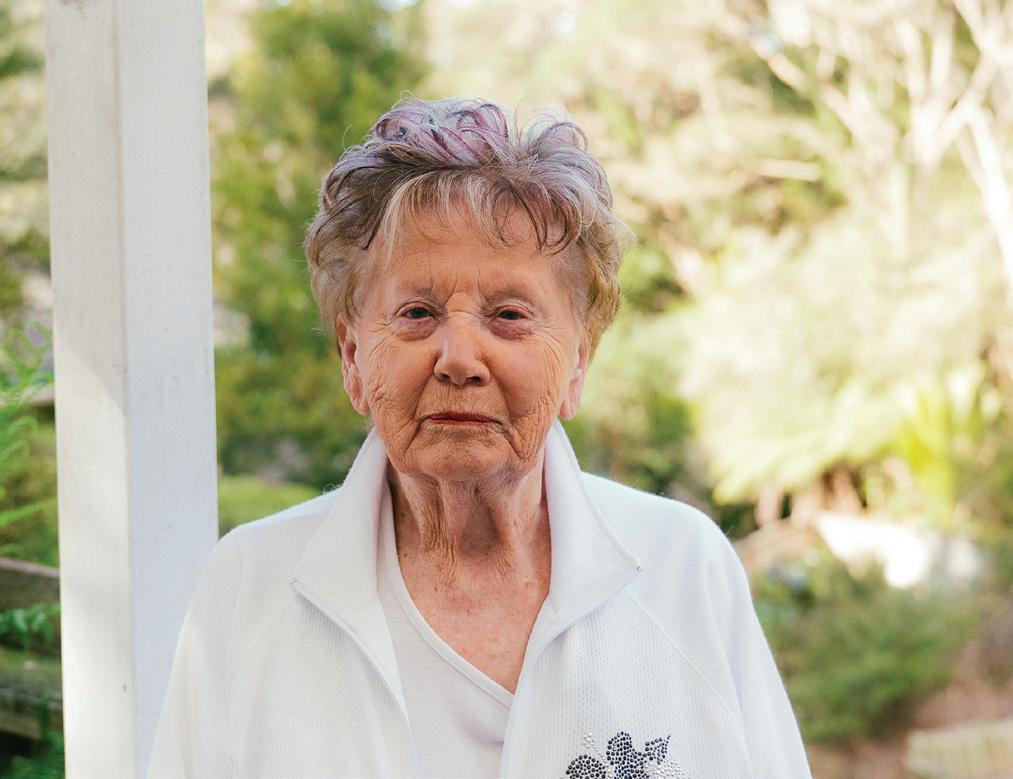
“It never occurred to me that there’d be a time when I struggled with daily chores but my therapist was right.”
Even if it was just to sit and talk or share a cup of tea. “They’ve also given me confidence. They’ve raised my self-esteem, and they’ve made life so much easier for me. I’ve got no worries with them looking after me. They’ll do anything I ask, within limits, of course. Every time they come, as they prepare to leave, they’ll ask, ‘Is there anything else you want done?”
Visionwest Home Healthcare’s goal is to help older people and those living with disabilities to remain in the security and comfort of their own home. Rose appreciates that. “If it wasn’t for Visionwest, I’d probably be in a rest home. With Visionwest, I’ve still got my independence, which is great. I love my own home, but it would be tough physically and mentally without my caregivers. Being able to stay in my own home is enough incentive to keep me going and that’s all thanks to Visionwest and my caregivers.”
In her working days, Rose was a pattern maker and dress designer. She enjoyed square dancing and made all her own dancing dresses complete with fancy frills and bows. Today she realises that those days of activity are behind her, and she has a word for those who are like her. “I would advise any person who has a need around home to give Visionwest a call. Go to your doctor and get a referral and contact Visionwest.”
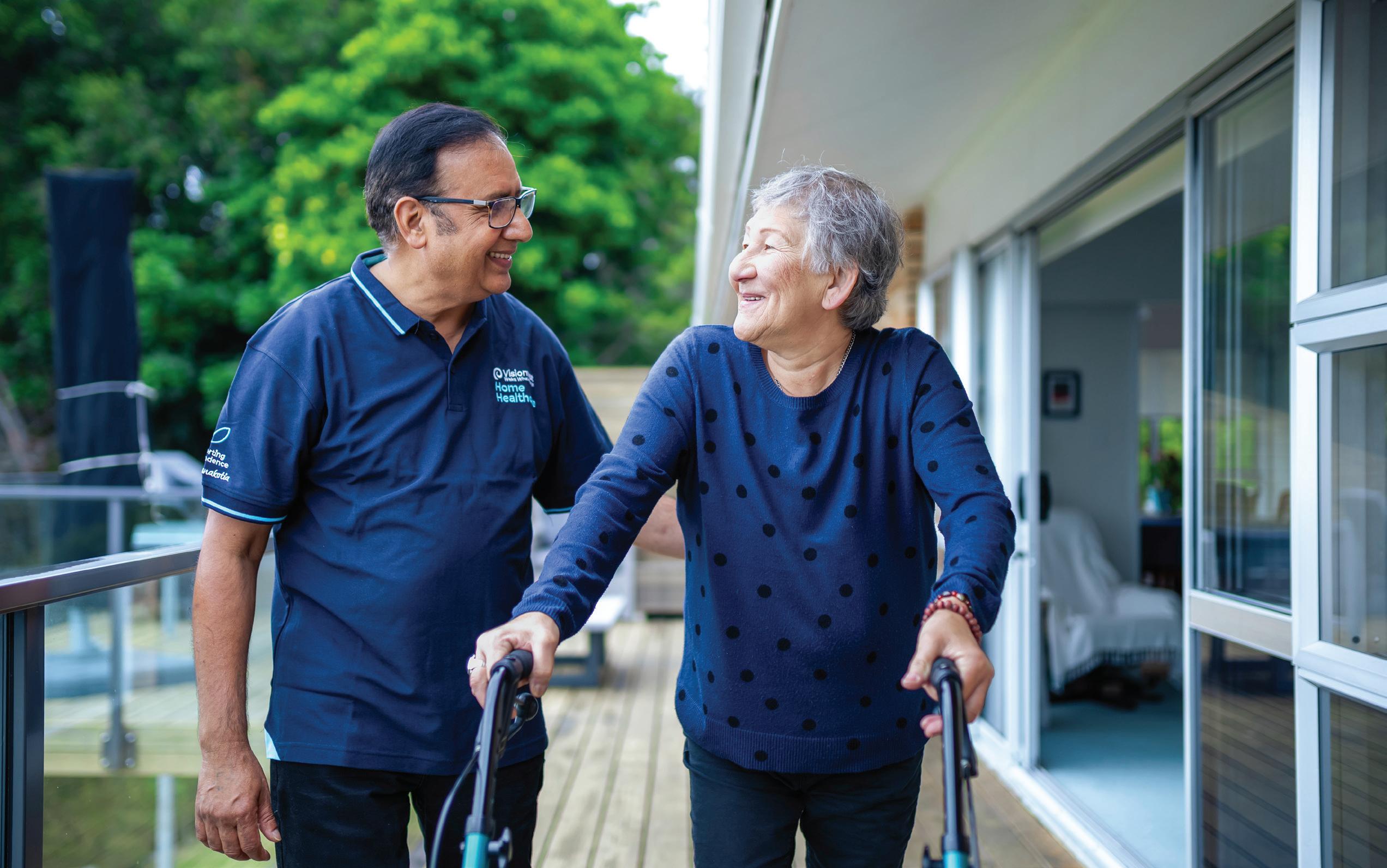

Serves 12
Flourless
Almond butter cookies
Almond butter chocolate chip cookies are easy to make, wholesome, and delicious — plus, they only require 5 ingredients!
These naturally gluten-free treats are so satisfying, you won’t even miss the butter or flour.
Ingredients
• 1 large egg
• 1c almond butter
• 1 tsp Baking soda
• ½ tsp vanilla essence
Gluten free
• 1c chocolate chips
Method
1. Preheat the oven to 180°C. In a medium-sized bowl, whisk the egg until well beaten. Add the almond butter and stir to combine, then mix in the brown sugar, baking soda, and vanilla extract. Stir everything together thoroughly — it might take some effort depending on the consistency of your almond butter. Finally, fold in the chocolate chips until evenly mixed.

2. Spoon out portions of the dough, roughly 1.5 tablespoons each, and place them on the prepared baking tray. Lightly flatten each mound with the back of a spoon. If the dough feels a bit oily from the almond butter, you can gently blot it with a paper towel. For an extra touch, press a few chocolate chips onto the top of each cookie if you like.
3. Bake for 10 minutes. The cookies will appear quite soft when you take them out — that’s perfectly normal! If you prefer a crispier texture, bake them for up to 12 minutes.
Serving suggestion:
Let the cookies cool on the baking sheet for 10 minutes before moving them to a wire rack to cool completely. Enjoy!
By Jamie Quinn
Simply delicious

One-pot slow-cooker
Pumpkin & carrot soup
This one-pot slow cooker soup combines pumpkin, carrot, and spinach for a nourishing, easy meal. Simply toss in the ingredients and let the slow cooker do the work.
Ingredients
• 1kg pumpkin, cut into 2cm pieces
• 3-4 large carrots, cut into 2cm pieces
• 1 bag (120g) baby spinach
• 1 ½ tsp paprika
• 1 tbsp crushed garlic
Method

• 1 tbsp Honey
• 250ml beef or vegetable stock
• Fresh or soy cream to taste
• Boiling water
• Salt and pepper to taste
1. Place the Pumpkin, Carrots and Spinach into slow cooker.
2. In a small bowl or measuring jug, mix together paprika, crushed garlic, honey and stock until dissolved. Pour over vegetables.
3 Top vegetables with boiling water, stop just before covered. Slow cook on low for approx. six hours.
4. With a stick blender, blend soup until smooth. Add salt, pepper and cream to taste.
Serving suggestion: Serve with warm bread. Enjoy!
Serves 4
Serves 4-6
Roasted Cauliflower & chickpea salad
This simple and speedy roasted cauliflower and chickpea salad is sure to impress.
Ideal for lunch or dinner! Enjoy it on its own or serve alongside your favourite protein.
Ingredients
• 1 whole cauliflower, cut into florets
• 1 400g can chickpeas, drained
• ½ red onion, thinly sliced
• 1/4c fresh parsley, roughly chopped
• 3 tbsp dried cranberries
• 1c greek yoghurt
• 2 tbsp fresh dill, chopped
• Olive oil

Serves 4
Method
1. Preheat oven to 200°C fan bake. Arrange the cauliflower pieces on a roasting tray and drizzle generously with olive oil. Season with salt and pepper, then bake in the oven for 20–30 minutes, or until golden and tender. Remove and set aside to cool.
2. When the cauliflower has cooled to room temperature, place it in a large mixing bowl. Add the drained chickpeas, red onion, parsley, and cranberries, then toss thoroughly to combine.
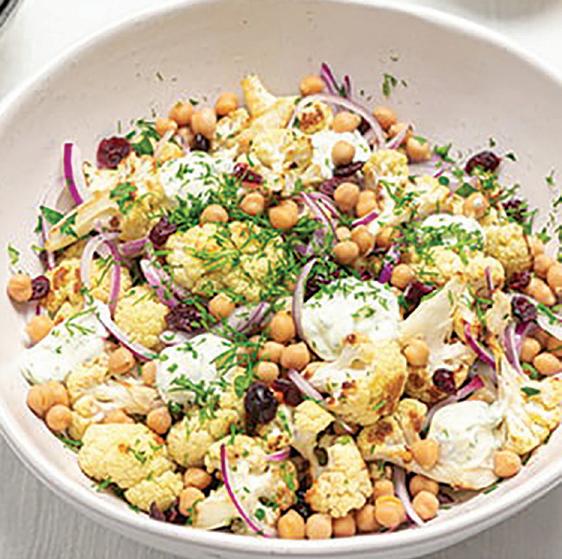
3. Drizzle the salad with half of the lemon juice and zest, followed by a splash of olive oil. Season with salt and pepper to taste, toss to coat evenly, and transfer to a serving platter if desired.
4. For the yoghurt dressing, mix the remaining lemon juice and zest with the Greek yoghurt and half of the chopped dill. Season with salt and pepper to taste, then spoon over the salad.
Serving suggestion:
Garnish with remaining dill and a squeeze of lemon. Enjoy!
Chorizo & pea risotto

• 2 tbsp white wine vinegar
• 1.2l chicken stock, heated until simmering
• 200g frozen peas
• 60g grated parmesan, plus extra to serve
Method
big flavour.
This simple chorizo and pea risotto is a no-stress dinner with
Smoky chorizo and sweet peas create a delicious balance in every creamy, comforting bite — perfect for a satisfying weeknight dinner.
Ingredients
• 1 tbsp oil
• 200g chorizo, chopped
• 300g arborio rice
1. Heat the oil in a large frying pan, add the chorizo, and cook until it’s crisp and the oil has been released. Use a slotted spoon to remove a quarter of the chorizo and set it aside for topping.
2. Add the rice to the pan, stirring to coat it in the oil. Toast for a minute, then pour in the vinegar. Once the vinegar has evaporated, add a ladle of stock. Stir and allow it to absorb before adding more. Continue this process for about 20 minutes, until the rice is plump but still slightly firm in the centre.
3. Stir in the peas, parmesan, and the remaining stock. Mix well until the cheese has melted.
Serving suggestion:
Season with black pepper, then serve in bowls topped with the reserved crispy chorizo and a sprinkle of extra parmesan. Enjoy!
Good reads
The books captivating the Plusliving office

Jessica recommends
Butter by Asako Yuzuki, translated by Polly Barton
Part true crime, part love letter to fine dining, this gripping international bestseller is sure to make you hungry. The character-driven novel follows journalist Rika, whose interviews with passionate cook and convicted murderer Kaaji lead her on a journey of self-discovery. What starts as a conversation about butter evolves into a deeper exploration of identity and womanhood in modern society.
Kyle recommends
Atomic Habits by James Clear
For anyone hoping to develop or maintain healthy habits, this book is worth your time. It topped the New York Times best-seller list for 164 weeks after all. Habit researcher James Clear shares how it’s systems, not personal flaws, that shape habits. He explains that every habit follows a loop: cue, craving, response, reward. Focusing on small, consistent improvements — getting 1% better every day — leads to major change over time.


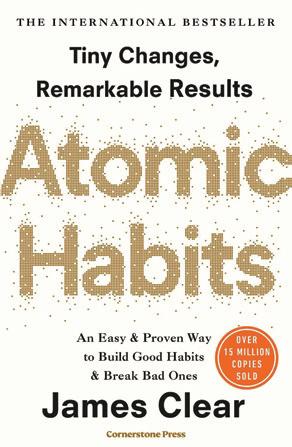
Jamie recommends
We Solve Murders by Richard Osman
Steve Wheeler is enjoying retired life. His days of adventure are over: adrenaline is daughter-in-law Amy’s business now. She’s currently on a remote island keeping world-famous author Rosie D’Antonio alive. Which was meant to be an easy job... Then a dead body, a bag of money, and a killer with their sights on Amy have her sending an SOS to the only person she trusts. A breakneck race around the world begins, but can Amy and Steve stay one step ahead of a lethal enemy?
Caro recommends Pillars of the Earth by Ken Follett
A spellbinding epic tale of ambition, anarchy, and absolute power set against the sprawling medieval canvas of twelfth-century England, The Pillars of the Earth is Ken Follett’s classic historical masterpiece. The historical novel, published in 1989, weaves together the lives of nobles, clergy, builders, and outcasts, exploring themes of ambition, love, power, and faith. It was made into an 8-part television miniseries in 2010 and a video game in 2017.
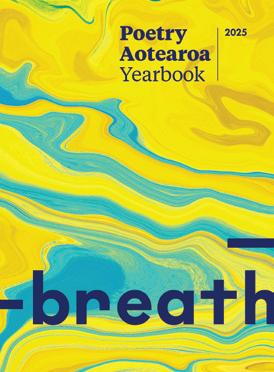
Ben recommends Poetry Aotearoa Yearbook 2025, edited by Tracey Slaughter
The Yearbook is essential reading for all New Zealand poetry fans. For the 2025 edition, editor Tracey Slaughter has once again hit the zeitgeist in her selection of 141 new poems from an exhaustive submission process. Another packed issue, #59 showcases the raw and the vital, including from this year’s featured poet, Mark Prisco, a blistering introduction from Slaughter herself, and excellent reviews of a crop of recent poetry books.
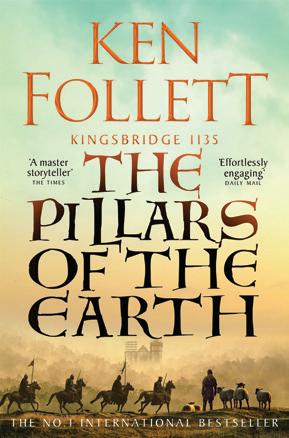



Based in Kumeu, New Zealand, we specialize in building tiny homes, granny flats and holiday retreats that redefine comfort, functionality, and style.
We can build onsite or offsite nationwide or International.
With a focus on quality craftsmanship, attention to detail, and personalized service, we ensure that every project reflects the unique needs and preferences of our clients. From initial design concepts to final touches, we guide you through every step of the construction process, making it seamless and stress-free.
Experience the difference with Small Builds –where small spaces lead to big possibilities.
At Small Builds, we stand behind our craftmanship. From the foundation to the finishing touches, we ensure the highest standards of quality in every aspect of our work. Your satisfaction is our priority, and we are committed to delivering excellence in every project we undertake.

WHY CHOOSE US
Whether it's providing extra accommodation for loved ones, crafting a cozy retreat away from the hustle and bustle, or offering a smart investment opportunity, we're here to bring your vision to life.
Council and Building Consents
We look after all council requirements if required.
Eco-Friendly Designs
We prioritize eco-friendly design, incorporating sustainable materials and practices to create healthier homes and a greener future.
Electrical & Plumbing
We handle all aspects of electrical and plumbing, guaranteeing top-tier solutions for seamless functionality and safety across your entire project.
Call us for a no obligation quote or visit us at our showroom in Kumeu Auckland
in the job and your payments. Protect your build and your back pocket. Both parties agree on a price.
deposits payment in our trust account.


Our fully customizable tiny homes are built specifically to suit your needs, wants & budget.


Different design options available.
Options to suit your budget.
Follow current legislation.
Builders guarantee.
Money locked in and secure.
Solar power options.
Screw piles for foundations or timber piles.
Lodging with council processing if you need.
Get in touch today for a free quote, no commitments necessary.
Whether you're seeking a cozy retreat in the countryside, a versatile backyard studio, air b and b for secondary income or a granny flat for family, our tiny homes offer endless possiblities. We collaborate closely with each client, ensuring that every aspect of their tiny home aligns seamlessly with their vision and budgetary constraints. With options available for every budget. m Paul 021378277
Options to build on site or off site and delivery.(delivery costs tbc)
Showroom
HAMPTON
Don’t rock the cradle
By Jamie Quinn

Becoming a grandparent is one of life’s greatest joys, but it also comes with a learning curve.
While your excitement and love for the new baby are endless, there’s a fine balance to strike between being helpful and overstepping boundaries. Grandparent etiquette is about respecting the parents’ wishes, offering support without taking over, and being mindful of the new family dynamic.
One of the most important things to remember is that this isn’t your baby, and this experience isn’t about you. It may sound obvious, but the temptation to offer unsolicited advice or revert to the way things were done when you raised your own children can be strong. Parenting trends, medical advice, and societal expectations have changed over the years, and it’s important to respect the choices the parents make for their child. If they ask for your input, share it in a gentle, supportive and non-judgmental way, but try not to take it personally if they choose a different approach.
One of the most important things to remember is that this isn’t your baby, and this experience isn’t about you. It may sound obvious, but the temptation to offer unsolicited advice or revert to the way things were done when you raised your own children can be strong.
Parenting trends, medical advice, and societal expectations have changed over the years, and it’s important to respect the choices the parents make for their child. If they ask for your input, share it in a gentle, supportive and non-judgmental way, but try not to take it personally if they choose a different approach.
Visiting the new baby is an exciting moment, but timing and consideration matter. While you may want to rush to the hospital or the new parents’ home the minute the baby is born, it’s important to follow their lead. Some parents may welcome visitors right away, while others might need time to rest and adjust.
Some things to
consider before visiting:
• The new mother is still recovering from giving birth and needs to rest and recover
• The new mother might want privacy as she tries to establish breastfeeding. This can be a very difficult, painful and vulnerable time for some new mothers
• The new parents may want privacy as they get settled with the baby and get used to caring for their newborn
• The new parents might be concerned about visitors bringing germs.
Always ask before dropping by, and be understanding if they say no. This is not a personal attack, this is a decision the new parents have made for their new baby and for themselves. When you do visit, keep it short and be mindful of their energy levels. Newborns are exhausting, and even the most well-intentioned guests can be overwhelming.
Holding the baby is a special experience, but be patient and wait for an invitation. Parents may be nervous about germs, overstimulation, or simply need more time to settle into their new routine. If you do get the opportunity to hold your grandchild, make sure your hands are clean, avoid wearing strong fragrances, and pay attention to any cues from the baby or parents that it’s time to hand them back.
Respecting the parents’ choices is crucial. Whether it’s about feeding, sleep schedules, or vaccinations, it’s their turn to make the decisions. If they choose to breastfeed, avoid making comments about bottle feeding. If they have specific sleep routines, honour them instead of suggesting alternatives. Even if you did things differently, refrain from saying, “Well, in my day…” as it can come across as dismissive. Instead, try saying, “I love seeing how you’re raising them,” which acknowledges their parenting efforts while keeping the conversation positive.
Offering help can be a game-changer for new parents, but how you offer it matters. Rather than insisting on taking over baby duties, focus on practical tasks that lighten their load. Doing the dishes, cooking a meal, folding laundry, or running errands can be more helpful than holding the baby while exhausted parents do chores. A simple “What can I do to help?” goes a long way, and respecting their answer—whether they accept or decline—shows that you genuinely care about their needs.
Social media is another area where grandparent etiquette is essential. The excitement of welcoming a new grandchild can make it tempting to share photos and updates, but always get the parent’s permission first. Some families prefer to keep their baby’s life private, while others have specific rules about when and how photos can be shared. A quick text to check before posting ensures that you’re respecting their boundaries.
Gifts are a wonderful way to express your love, but be mindful of the parents’ preferences. Some may appreciate gifts like diapers, onesies, or baby gear, while others might have a specific registry they’d like you to follow.
Oversized stuffed animals or extravagant items may not always be welcome, so checking in before purchasing ensures your gift is truly appreciated. If they have a minimalist approach, consider more practical gifts, such as contributing to a savings account or offering a meal service.
One of the most valuable things you can give is emotional support. Parenting is overwhelming, and a kind word, encouragement, or simply listening without judgment can make a huge difference. If the parents are struggling, reassure them that they’re doing a great job. If they need space, give it to them without taking it personally. Your role is to be a source of comfort and reassurance, not stress.
Boundaries work both ways, and it’s okay to set your own as well. If you feel like you’re being asked to babysit more than you can handle or if there are family dynamics that feel overwhelming, communicate openly and kindly. Being a grandparent is an honour, not an obligation, nor is it an entitlement. Honest and respectful conversations with the parents help create a healthy and positive relationship for everyone.
As the baby grows, your role will evolve. There will be new milestones, new challenges, and new opportunities to bond. Being adaptable, respectful, and loving is what truly makes a grandparent invaluable. By creating a relationship that is built on trust, respect, and, most importantly, love, you can hope to be in your grandchild's life to watch them grow and thrive.

One of the most valuable things you can give is emotional support. Parenting is overwhelming, and a kind word, encouragement, or simply listening without judgment can make a huge difference.
Your Local Tauranga & Mt Maunganui Electrician

Who is PERL Plumbing and PERL Electrical?
PERL Group, a nationwide franchise network of plumbing and electrical companies, offers superior support, business education, and innovative systems, transforming exceptional professionals into world-class trades.
Our Leadership
Andrew, with 25 years of experience in the Building and Construction industry, founded PERL, a national plumbing and electrical franchise, with a focus on establishing trust and customer experience to achieve long-term success.
Our Story
PERL Plumbing and Electrical is a business partnership model that provides support for local family trade businesses. It focuses on earned trust, quality service, and community, collaborating with top suppliers and a world-class leadership team to ensure nationwide capability and success.
What’s Important To Us?
PERL prioritizes people as their greatest asset, investing in effective teams and delivering efficient plumbing and electrical services. They aim to be New Zealand’s most trusted provider, focusing on safety, diversity, leadership, and environmental impact reduction.


m 0800 382 353
k peter.murfitt@perlelectrical.co.nz
9 PERL Electrical Tauranga 118 Haukore Street, Hairini
• Residential Electrical
• Commercial Electrical
• Industrial Electrical
• Rural Electrical
• After-Hours & Emergency Electrical
• LED Lighting Upgrades
• Heat Pumps & Ducted Systems
• Gate Automation
• Property & Facilities Management
• Ventilation, Extraction & Heat Transfer
• EV Charging Solutions
• Solar Power & Off Grid
• Switchboard Upgrades Services
Test your speed-reading
Reading quickly is a valuable skill, but one must read fast and comprehend well to achieve it.
Time how fast you can read the passage below, then answer the questions below to test your comprehension to see how well you can speed read!
Start your timer!
Speed reading is not just racing through a passage. Once honed, it becomes a powerful technique that, when combined with effective comprehension strategies, can significantly enhance your cognitive abilities — not only in reading but also in learning other new skills. At its core, speed reading involves training your eyes and brain to process information more efficiently, minimising habits like subvocalisation — where you “say” words in your mind as you read. By practising methods such as using a pointer or finger to guide your eyes, expanding your peripheral vision, and chunking words together, you can increase your reading speed while still understanding the material and even enjoying the process more.
Comprehension is the critical companion to speed. Without it, reading quickly becomes meaningless. Focus on active reading strategies: preview the text by skimming headings and subheadings, ask yourself questions about the content before diving in, and summarise key points after each section. This improves recall while also encouraging deeper, critical thinking. This approach keeps your brain engaged and helps you retain more information. Over time, these habits strengthen your cognitive abilities, making it easier to process complex ideas and remember important details.
Combining speed reading with comprehension exercises creates a virtuous cycle for your brain. As you challenge yourself to read faster and understand more, your brain adapts by forming new neural connections. These adaptations support lifelong learning and mental resilience. It’s like a workout for your mind, just as physical exercise builds muscle, reading efficiently builds cognitive strength. Studies suggest that people who regularly practice speed reading and comprehension techniques experience improved memory, sharper focus, and enhanced problem-solving skills.

By Ben O’Connell
Whether you’re a student, professional, or lifelong learner, these skills empower you to absorb vast amounts of information quickly and effectively. By incorporating these strategies into your daily routine, you can unlock your brain’s full potential, remain mentally agile, and keep pace with the ever-growing demands of the information age.
Stop your timer!
Answer these true or false statements to ensure you understood the passage.
1. Skimming headings is a bad speed-reading strategy
2. Subvocalisation is a habit where you mentally say words as you read
3. The passage compares speed-reading to racing a speedy car
4. Memory, focus, and problem-solving improve with speed-reading skills
5. The passage describes speed-reading as ‘valuable’ for the brain.
The odd-numbered statements are false, whereas the evennumbered statements are true. If you answered all five questions correctly and took one minute or less to read the passage, you are an excellent speed reader. The passage has 319 words, but the average reader reads about 240 words per minute. If you took over three minutes to read the passage, its advice might be worthwhile to you! Speed-reading is a valuable skill, but ultimately, reading is to be enjoyed at your own pace.
About us
Tyre World is an independent and locally owned tyre dealer based in Tauranga, New Zealand.
With over 40 years of combined experience, we take the time to ensure your vehicle is safely fitted with the correct tyres at a competitive price. You can ensure that by trusting us, you will receive a professional and high-quality service with every visit
We service vehicles of all calibres; no matter if you’re driving a Demio, Hilux, Tractor or Truck, we will be able to source and fit the right tyres you need or want!
Opening Hours
7:30am - 5:00pm

SERVICES
Here at Tyre World, we do all tyres and all services. If you’re struggling to source the tyres you need, give us a call and we’ll help you find them and fit them!







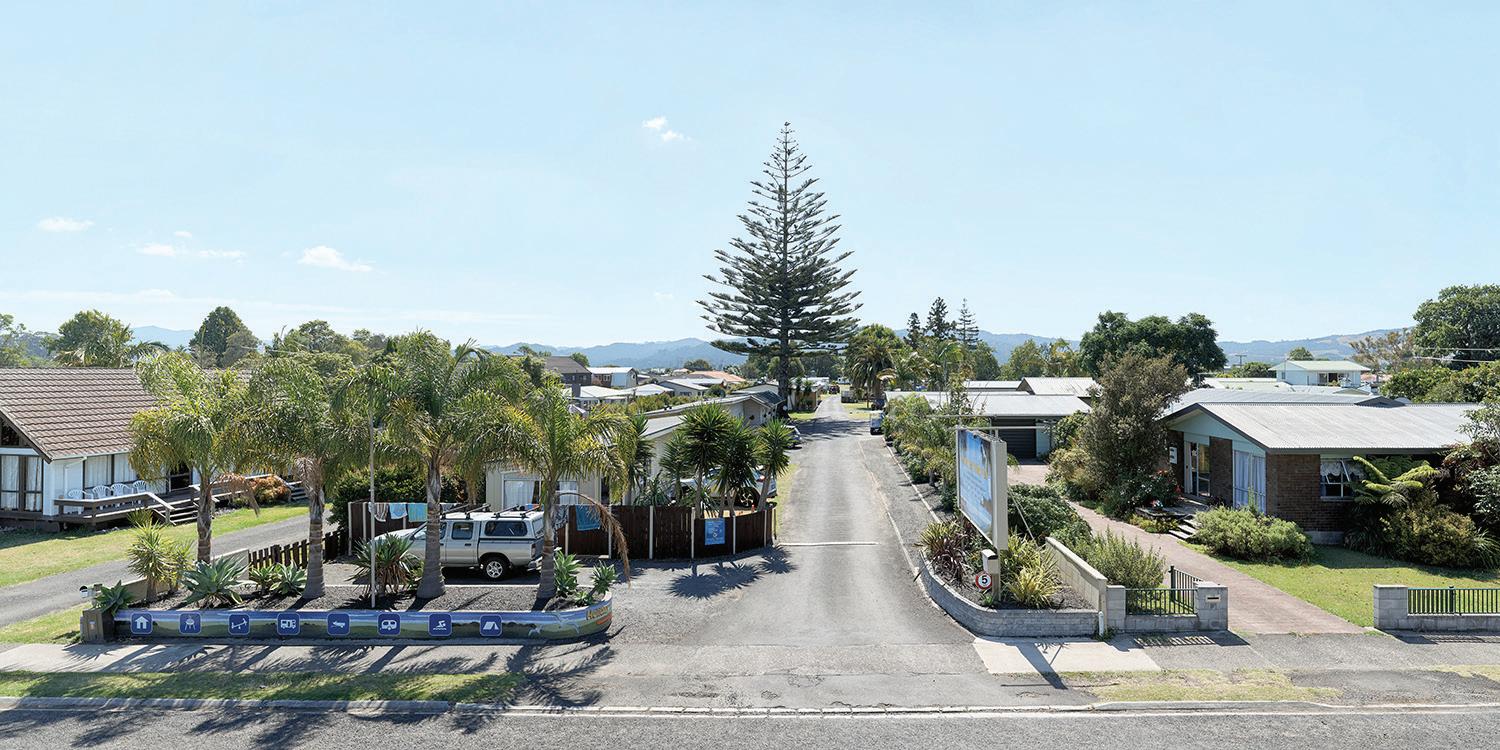
If you are looking for a quiet, relaxed atmosphere with a full range of accommodation options and great facilities, then Mercury Bay Holiday Park is the perfect place for you and your family.
A 600m walk to restaurants, shops, and our beautiful beaches means, you can leave your car or motor-home securely with us and easily explore everything Whitianga has to offer on foot.
We are only 2.5 hrs drive from Auckland, Hamilton and Tauranga. Centrally located on the eastern side of the Coromandel Peninsula the ideal location for Hot Water Beach, Cathedral Cove, New Chum Beach and Coromandel Township.
CONTACT US
07 866 5579 | info@mercurybayholidaypark.co.nz
121 Albert Street,Whitianga www.mercurybayholidaypark.co.nz
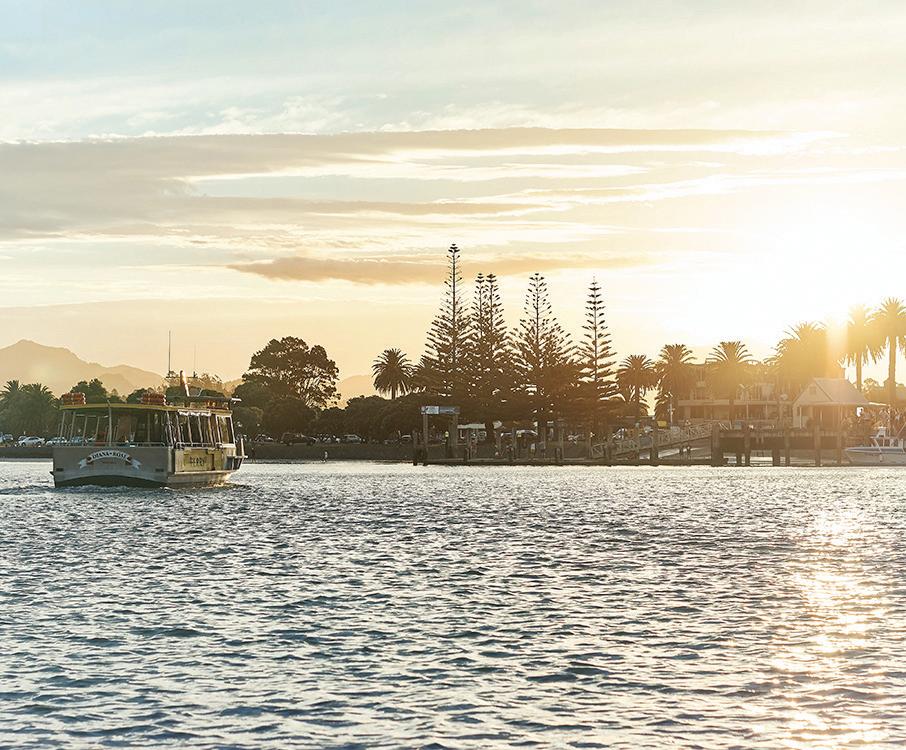
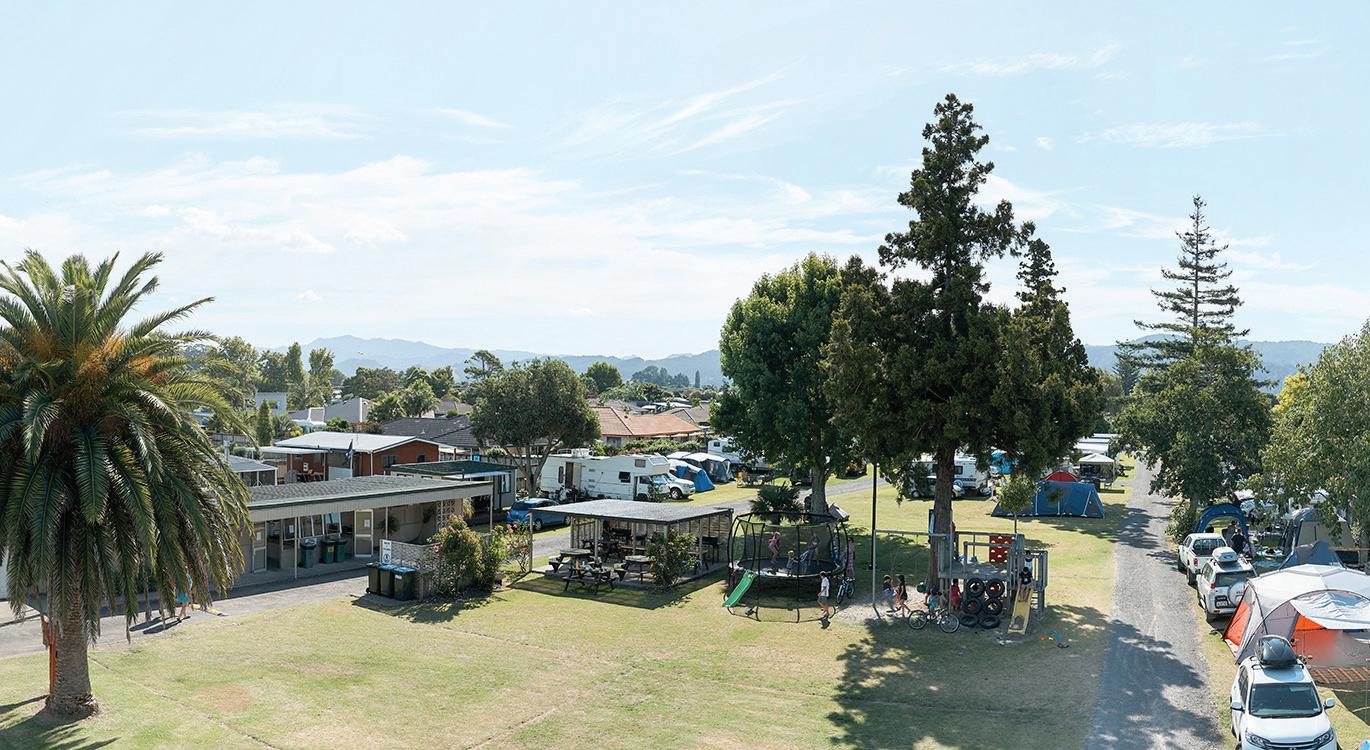

Mind Games
The old saying ‘use it or lose it’ applies as equally to mental acuity as it does to physical wellbeing, and more so as we age. With people progressively living longer lives, it is increasingly important to look after our mental health. So here are some activities for the mind… brain food for improving your state of mind.
Geography
Wordsearch
These words may go horizontally, vertically, diagonally, not backwards. The remaining letters will spell one more hidden geography term.
HIDDEN:
ANSWERS:
RULES: Sudoku rules are simple. A 9×9 square must be filled in with numbers from 1-9 with no repeated numbers in each line, horizontally or vertically.
To challenge you more, there are 3×3 squares marked out in the grid, and each of these squares can't have any repeat numbers either.
ANSWERS:

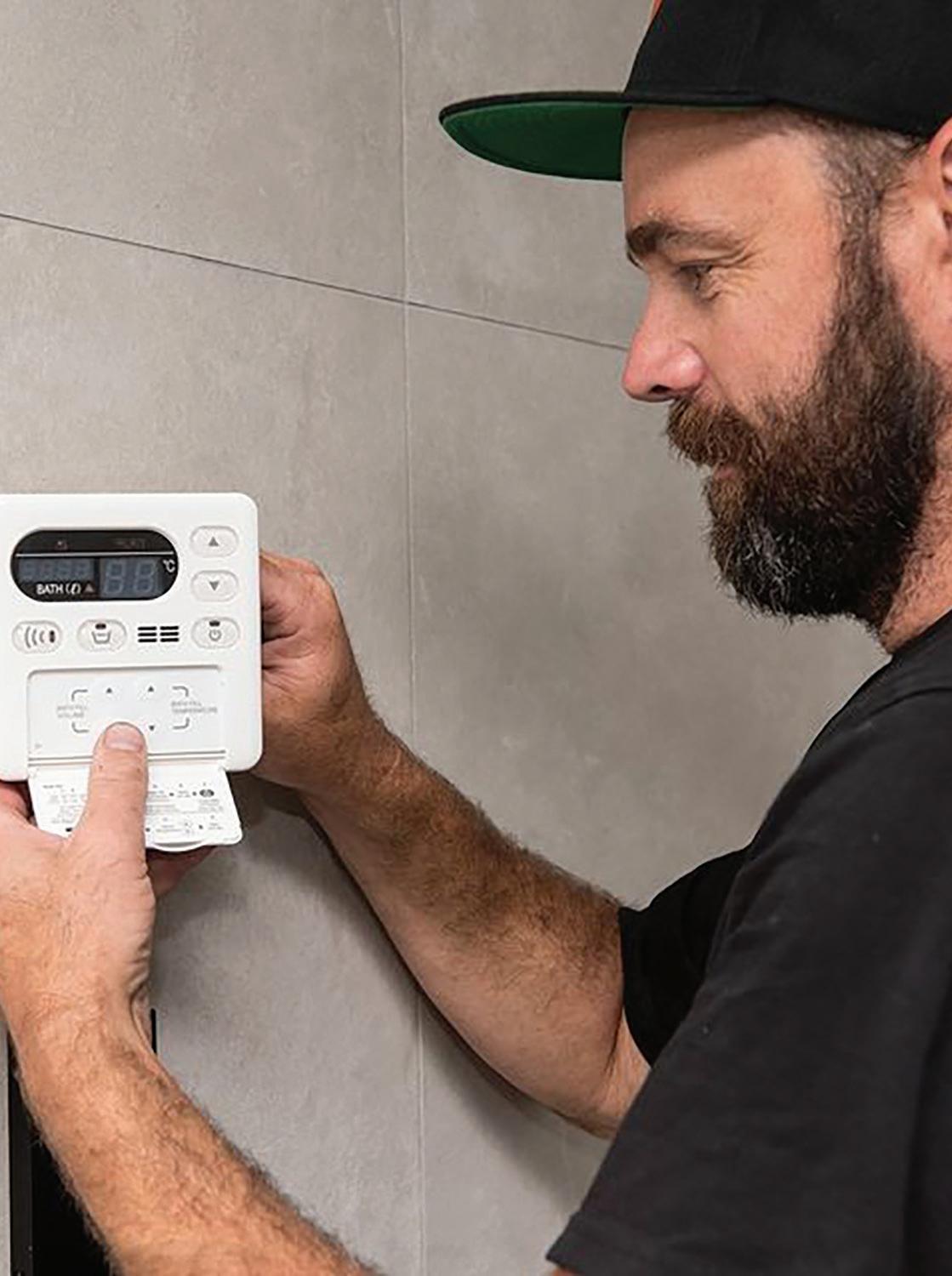

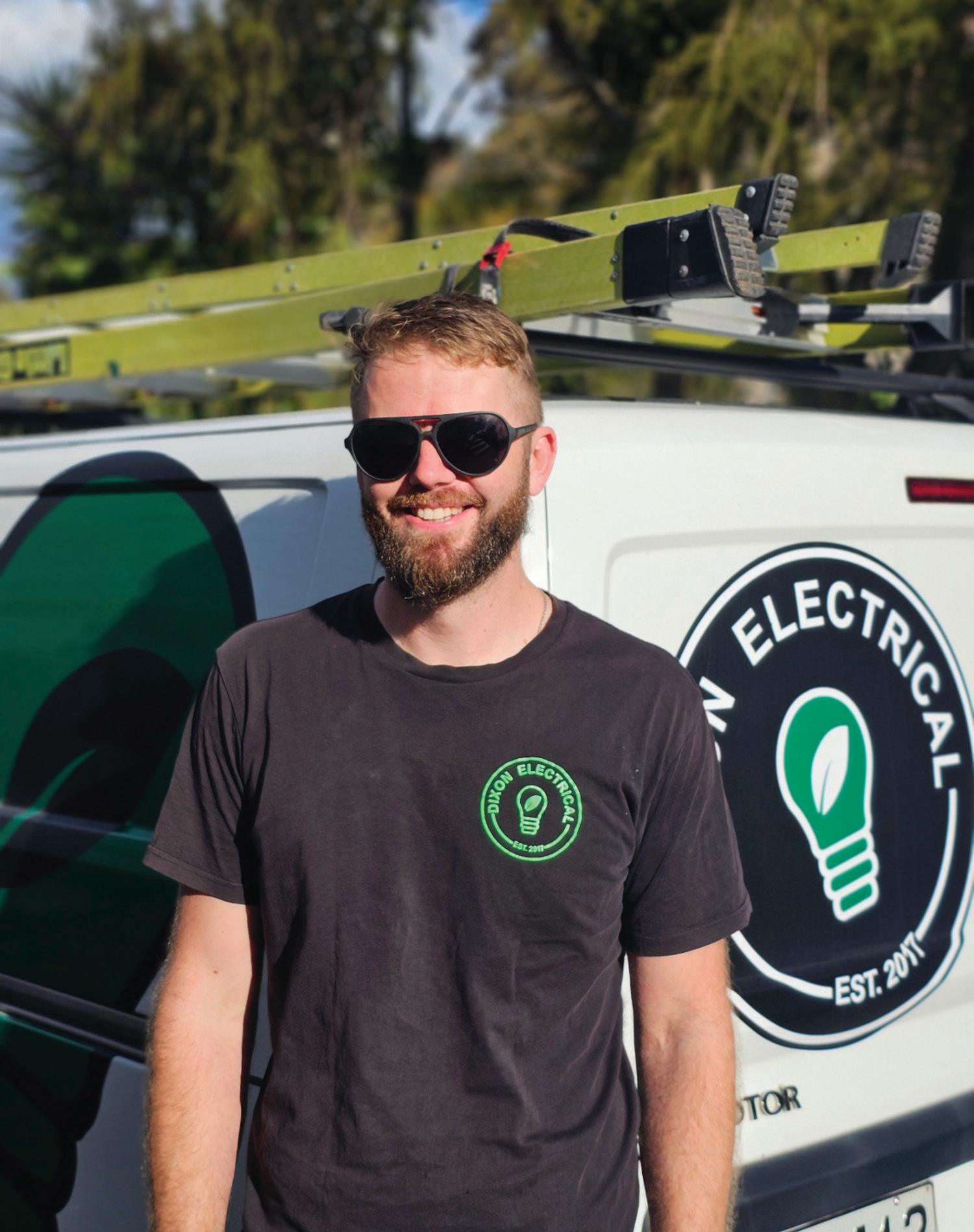
Riding solo More Kiwis are living alone than ever before
More New Zealanders than ever are living alone, a trend that reflects the country’s shifting demographics, social values, and lifestyle preferences.
According to Statistics New Zealand, nearly 390,000 people lived alone in 2023, making up around 8.5 percent of all people in private households. While the percentage has remained relatively stable over the past decade, the number continues to grow in line with population increases.
Older adults make up the largest proportion of solo dwellers. Almost half, 49.4 percent, of those living alone were aged 65 or older, up from 44 percent in 2013. With increasing life expectancy and an ageing population, more people are living independently well into their senior years. Many of these individuals are widowed, divorced, or separated. In fact, in 2013, 63 percent of solo dwellers fell into one of these categories.
Women are more likely to live alone than men, particularly in later life. This is partly due to women’s longer average lifespans and traditional patterns of marrying older partners. Ethic background also influences living arrangements. New Zealand European and other European groups are more likely to live alone, while Pacific and Asian communities, where multigenerational living is more common, show lower rates of solo households.
While many choose to live alone for independence or lifestyle reasons, others do so due to life circumstances. Homeownership plays a role too, with 62 percent of solo dwellers own or partly own their home, compared to 50 percent of those living with others.
Women are more likely to live alone than men, particularly in later life. This is partly due to women’s longer average lifespans and traditional patterns of marrying older partners.
However, living alone doesn’t come without its challenges. Stats NZ data shows that people living alone are more likely to feel lonely and less likely to report high life satisfaction. 50 percent of solo dwellers said they sometimes or often felt lonely, compared to 34 percent of those living with others. They also scored slightly lower on life satisfaction ratings, though they were more likely to feel safe in their homes.
As the living alone lifestyle becomes more common, it is important to think about ways to support those who live alone, especially older adults. Having consistent, regular contact with friends and family, getting involved in community activities, or even volunteering can help fighting loneliness. Community centres, local classes, and hobby groups offer opportunities to meet others and build a support network. Technology also plays a role; video calls and online forums allow people to stay in touch.
Living alone doesn’t have to mean being alone. With a bit of support and social opportunities, solo living can be fulfilling. As New Zealand’s population continues to grow, understanding and supporting the needs of this growing group will be key to ensuring wellbeing across all stages of life.







What to look for in a real estate agent
By Jen Baird, former chief chief executive of the Real Estate Institute of New Zealand
Your home is often your largest personal asset, so selling it can be both exciting and stressful at the same time.
That’s why having an agent that you can trust to help you achieve the best price and conditions possible for your home – all while being transparent and ensuring all parties are comfortable and aware of the processes, will make a big difference.
Certain attributes differentiate a great agent from a good agent. We recommend that you look for agents who demonstrate a great deal of professionalism, local knowledge and have a good reputation.
Look for someone who understands the kind of people who will be interested in your home. This will help with the marketing of your home and communicating the benefits of your property to potential buyers.
Local agents often have a network of potential buyers that they have been working with or regularly communicate with, who are ready and able to provide the best price for your home.
Great real estate agents are well connected, therefore asking family and friends if they know an agent they would recommend is a great start; referrals are often the best way to find an agent with a proven track-record, and not just someone who knows how to say the right things at the right time.
When asking for recommendations, remember to ask what factors their recommendation is based on. Did they get the level of communication they wanted? Did they think the agent used the marketing spend effectively? Did they manage any challenges through the process well?


Great real estate agents are well connected, therefore asking family and friends if they know an agent they would recommend is a great start; referrals are often the best way to find an agent with a proven track-record, and not just someone who knows how to say the right things at the right time.
Agents are usually more than happy to come to your property, share their knowledge and talk you through your options for selling. We recommend meeting a few agents before you choose who to work with.
Try visiting open homes they are hosting to understand how they present their vendor’s property. This will help you get a feel for how they will work to get the best for your property.
Take a look online and see how agents are using social media and digital marketing to increase coverage for the properties they are selling, and therefore see what you could expect for your home. Many agents will also use advanced technology to help market and sell your home, which can often reach a broader audience, for example:
• Virtual Reality tours or 3D walkthroughs are one of the options that increase the accessibility of an open home to a wider range of potential purchasers in the first instance, particularly out of town buyers
• Augmented Reality is another option that can help potential purchasers rework the layout of furniture in the home, so they can better picture themselves and their belongings in the home.
Try not to select an agent based solely on their commission fee, but it is important to understand what the fees are. While these do vary by agency, our advice is to choose an agent you trust and whose previous work gives you confidence.
Great agents can achieve a better price for your property by understanding the best strategies according to different market conditions.
At the end of the day, the person you choose is going to be a big part of your life while you sell your home, so it is important that you feel comfortable with them and that you can trust them to get the job done.




Smarter Real Estate
Wayne Jackson is a seasoned real estate agent with 28 years of experience in both Australia and New Zealand. He holds a Full Agents Licence and approaches his daily work with enthusiasm, dedication, and a positive attitude. His commitment to excellence has made him the leading listing and sales agent in his area for several years.
Wayne recently joined Arizto to elevate his service to clients by utilizing a modern approach to real estate. This allows him to offer affordable services, leveraging the latest technology and systems to ensure success.
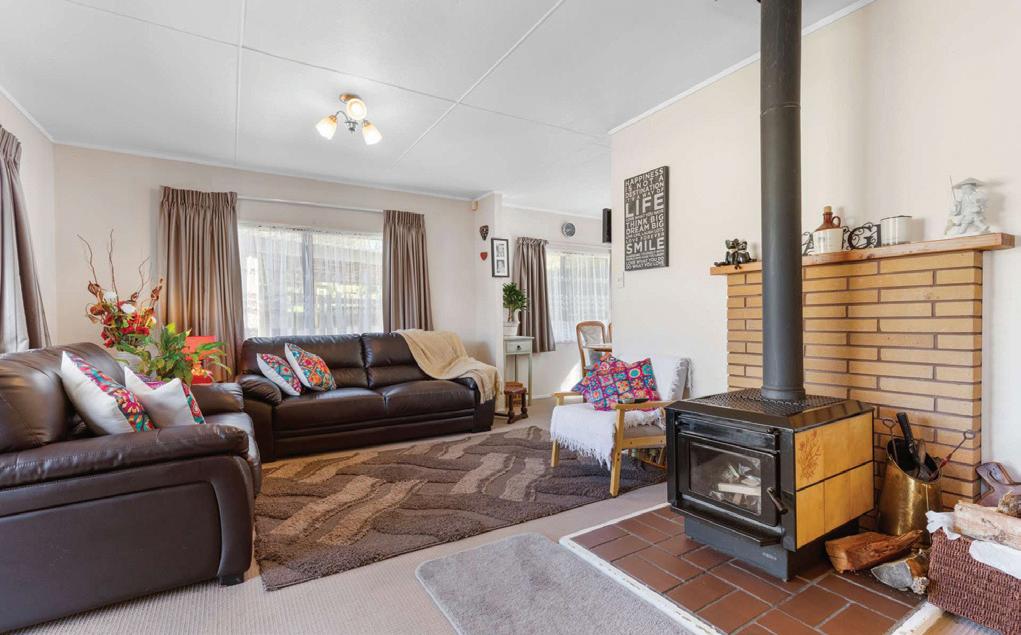
If you need an experienced, hardworking realtor to sell your most valuable asset, contact Wayne at 027 728 3355. He'll happily appraise your property and provide expert advice on how to achieve the best result in any given market.
Outside of his work, Wayne enjoys fishing, traveling & relaxing with his family, cooking, and gardening. Call Wayne today to take advantage of his wealth of experience and passion for real estate.
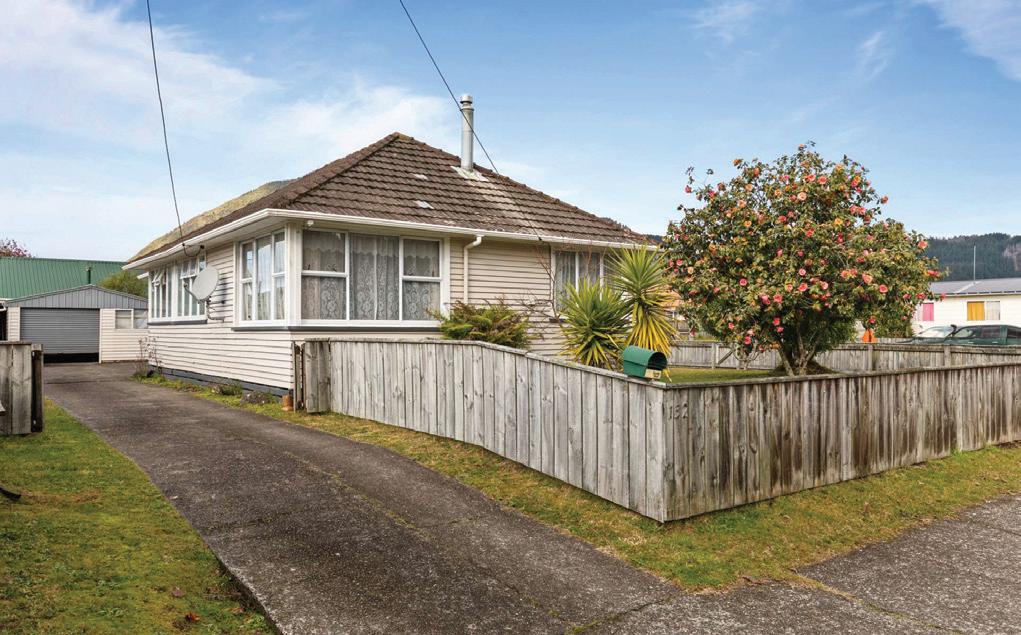
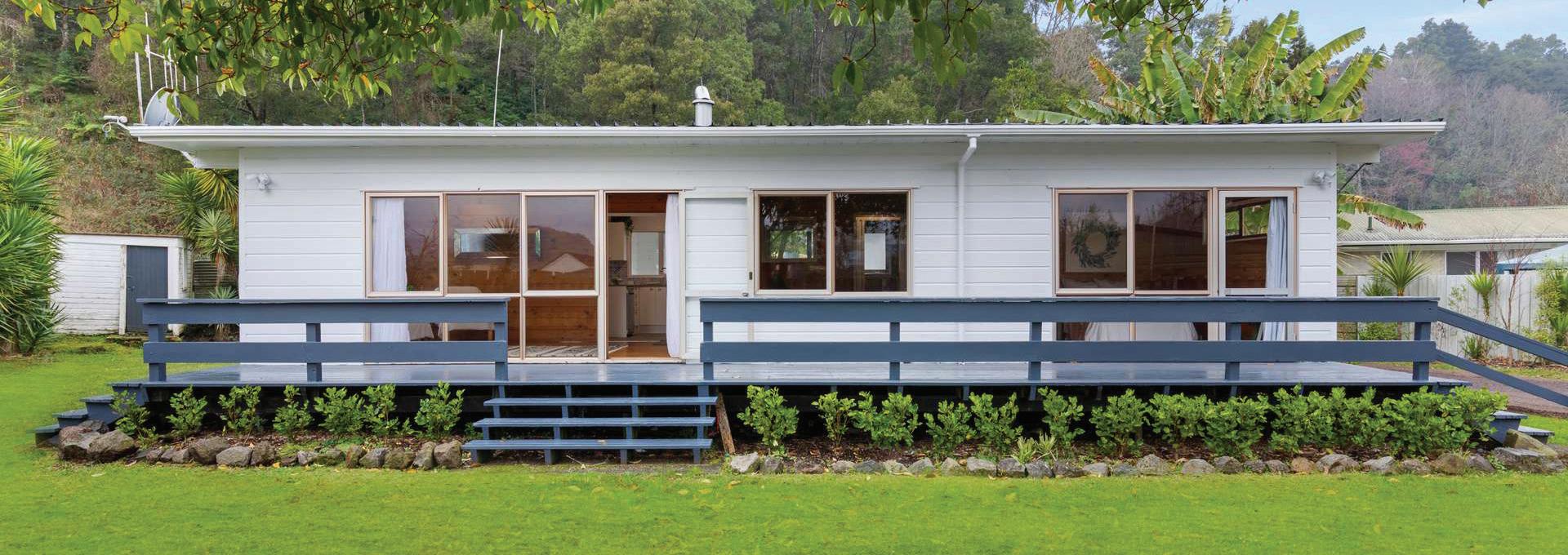
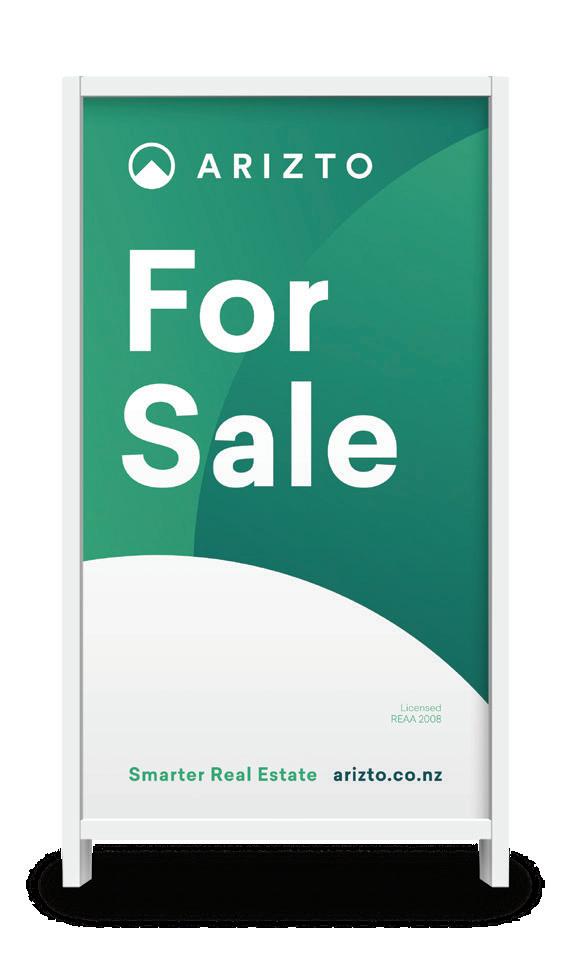
Wayne Johnson 027 728 3355
132 Onslow Street, Kawerau
231 Valley Road, Kawerau
River Road, Kawerau
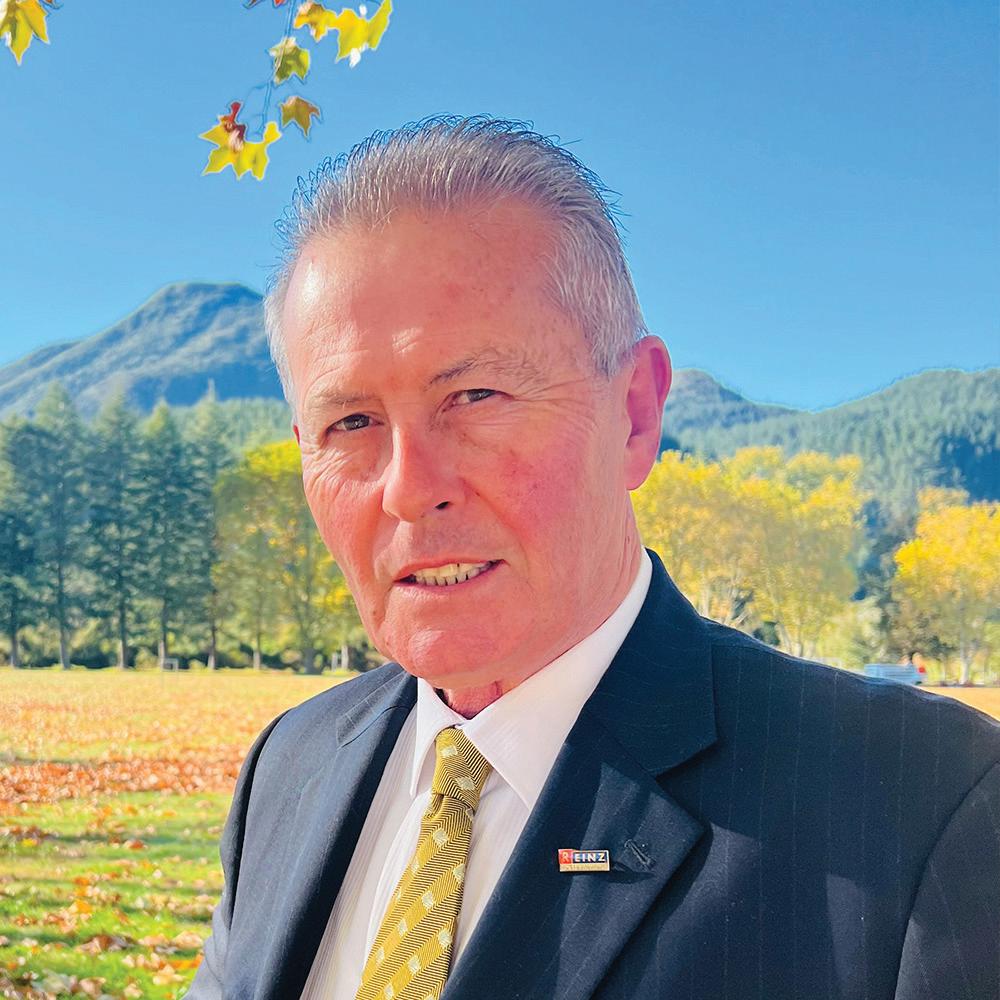


the Bay of Plenty and beyond, we are your first call for property valuation and consultancy advice. www. B2BNEWS .co.nz
07 927 7544 | tauranga@prpnz.nz | 111 Cameron Road, Tauranga | www.prpnz.nz






Take the time to talk about your funeral
By Gillian Boyes, Chief Executive, Funeral Directors Association of New Zealand
At many funerals these days, you’ll see a photo tribute or hear specially chosen music that reflects the person who has died.
But have you ever thought about the photos or music you’d want, or want for a loved one? Preparing these details can be a gentle way of beginning the planning for a final farewell and has the added bonus of helping you re-live many happy memories as you begin the sorting process.
If you’ve been wondering how to start here’s some more ideas to talk about with your family.
Think
about where you’d like your funeral to take place - Chapels and churches are still popular but increasingly people are opting for highly personalised approaches.
Has a certain sport or interest been a big part of your life? Perhaps your funeral could be at your sports club or the club rooms of your interest group.
Love your garden, the beach, your local park? You could have a special ceremony there (your funeral director will let you know of any local council requirements). Your cultural traditions may dictate the venue. Funeral directors can work within those requirements too.
Your venue might dictate whether you have a funeral (with the body present) or a memorial (with ashes). Both options offer the opportunity for your family and friends to gather and remember which is a key part of their grieving process.
Consider whether you prefer burial or cremation
While there are other options too such as burial at sea or donating your body to science, burial on land and cremation remain the most popular choices for most New Zealanders.
If you prefer a burial, some councils allow you to pre-purchase a burial plot which can help you avoid ever increasing cemetery charges.

Consider your casket choice - Caskets these days come in the widest possible varieties. Prefer something simple? An MDF, or plain casket your family can decorate themselves might be for you.
Want to think sustainably? Solid wood options might befit you, or consider a felted wool or wicket casket which might also reflect a love of nature. Shrouds are another option particularly for natural burials. Casket makers can also offer bespoke options including beautifully carved coffins and couches, or special wraps with your favourite image or colour. Yes we’ve even seen a donut themed casket.
Many people find it reassuring to know a deceased body is treated with the highest respect and care at a funeral home. You might have other questions you’d love to ask, so look out for local open days at funeral homes. People find these absolutely fascinating and taking away some of the mysteries about what goes on can also take away the fear.
Get your paperwork in order - A really important gift you can give to your family is having your paperwork in one place. This includes your will but also details that’ll help them close off bank accounts, utilities and even social media. Make sure that if you’ve organised a funeral pre-payment that details of that are included with that paperwork. We’ve sometimes had to follow-up and refund families who had no idea mum or dad had already paid.
A final paperwork tip is to make sure your immediate next-ofkin details are included with your important papers – these are important for death registration.
Talk with your family about what’s important
for them - Remember that while you might not want a fuss, your funeral is a time for your family and friends to grieve for you. Coming together, hugging, looking at those wonderful photos or listening to the songs you loved will help them as they come to terms with living without you.
Writing down what you decide, or asking your local funeral home to capture the details in their system so they don’t get mislaid will mean that when the time comes, your special people are left with peace, not decisions.


Suppliers of:
• Granite Headstones & Grave Covers
• Custom Designs
• Granite & Marble Statues
• Laser Etching Specialist
• Porcelain Photos
• Photo Ceramic Tiles
• Bronze Plaques
• Granite Plaques & Recumbent Desks
• Second Inscriptions
• Memorial Repainting
• Grave Restorations
Gofor SuperGold
If you’re growing older in New Zealand, your SuperGold Card is more than just a handy discount card, as it can also help you access valuable health benefits.
Designed to support older New Zealanders, the SuperGold Card offers savings on healthcare services, making it easier to maintain your well-being without straining your budget.
Many pharmacies, audiologists, optometrists, and dental clinics across New Zealand offer discounts to SuperGold Card holders. You can enjoy savings on prescriptions, eye examinations, hearing tests, and even dental check-ups. It’s always a good idea to check with your local healthcare provider to see if they accept the card.
If you’re interested in natural or alternative treatments like acupuncture, physiotherapy, or chiropractic care, some practitioners offer SuperGold Card discounts. It’s worth checking with local providers to see what’s available in your area. Look for the gold logo in shop windows or at checkout counters as well. Clothing shops and department stores often provide related discounts.
Numerous cafes, bakeries, and restaurants across New Zealand offer senior discounts, with some providing discounts of up to 1015% off meals or drinks. Fast food chains may also offer discounted meal combos for seniors. When booking a table or ordering at the counter, simply ask if there’s a senior deal available. Look out for special deals on certain days of the week, such as discounted lunch menus or two-for-one offers.
To find out which businesses and healthcare providers accept the SuperGold Card, visit supergold.govt.nz or ask at your local health centre. Keep your card handy and always check for available discounts: it’s a simple way to take care of your health while saving money.

By Mike Jerome Infante
SuperGold are not the only discounts on offer. These include free off-peak public transport, discounted InterCity and KiwiRail fares, cheaper power through the Winter Energy Payment and provider deals, and health savings via the Community Services Card.
Some entertainment venues, such as cinemas and museums, often provide concession rates. Local councils may provide rebates and support services, such as Meals on Wheels and home help, which are available. Seniors can also join Grey Power for extra perks. Always ask businesses if they offer a senior discount — it pays to check!



Design a healthier future with Imagine Architecture
At Imagine Architecture, we don’t just design homes we create environments that nurture wellbeing, elevate everyday living, and stand the test of time. Based in Tauranga and New Plymouth, our award-winning team specialises in crafting new architectural homes that are as healthy as they are beautiful.
We believe your home should support your lifestyle and your health. That’s why we prioritise natural light, clean air, thermal comfort, and energy efficiency in every design. As Certified Passive House Designers, we integrate world-leading building science to deliver homes that are warm, dry, quiet, and cost-effective to run year-round.
Our approach is deeply personal and collaborative. We begin by understanding your vision, values, and how you want to live. From there, we guide you through a seamless journey from concept to completion ensuring every detail is tailored to your needs and aspirations.
Imagine Architecture is known for its distinctive, modern aesthetic and commitment to technical excellence. Our homes are designed to perform balancing form and function, sustainability and style, innovation and comfort. Every project is a unique response to its site, its climate, and most importantly, its people.
Whether you're building your forever home, beach retreat or an eco-masterpiece, we’re here to help you imagine more and live better. Let’s create a home that enhances your health, your lifestyle, and your future.


“Changing lives through great architecture & design!”
• Passivhaus Design
• Architectural Homes
• Budget Management
• Commercial Buildings
• Property Development
• Retail Fitouts & Commercial Interiors
• Award Winning Design



